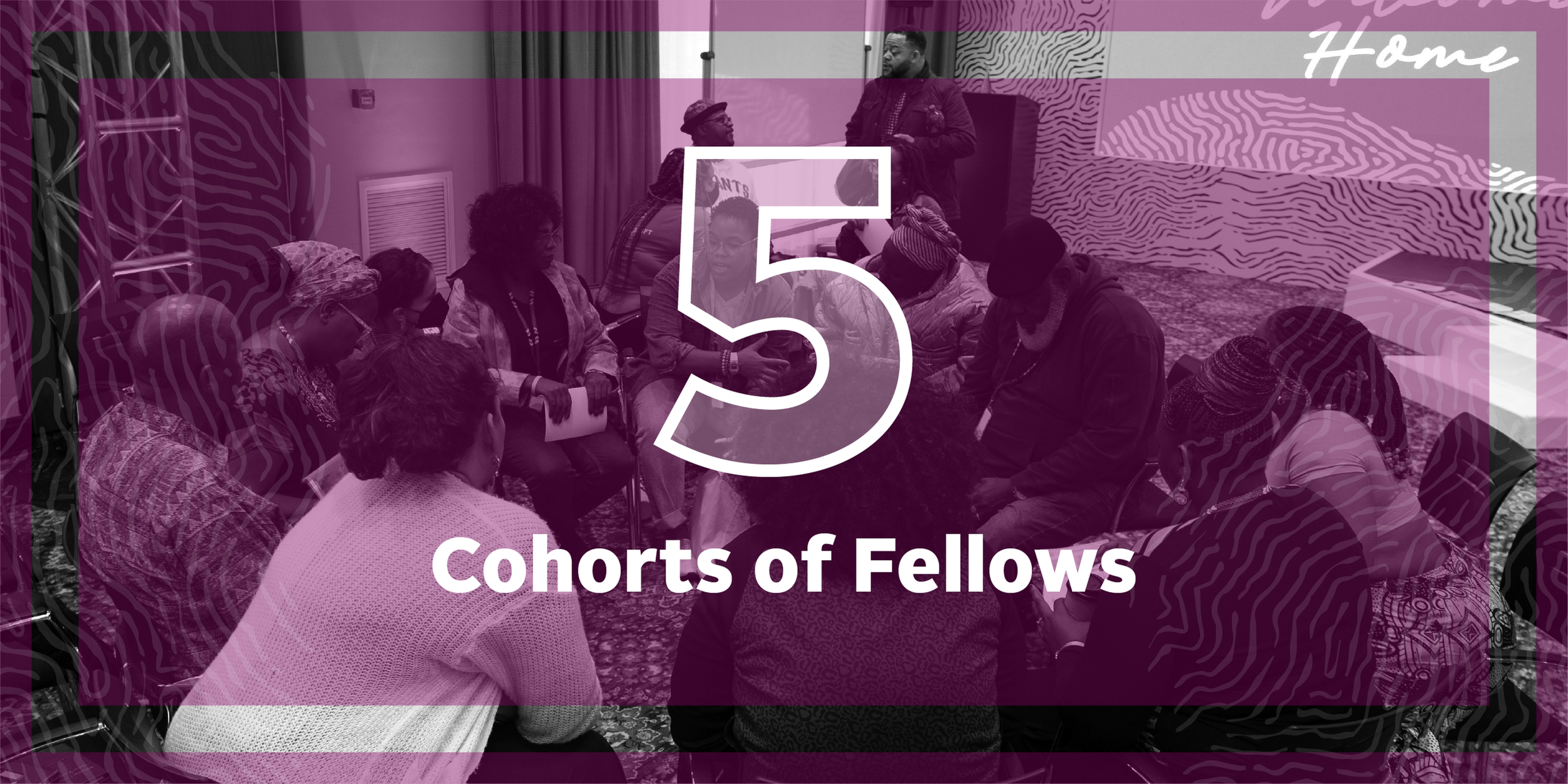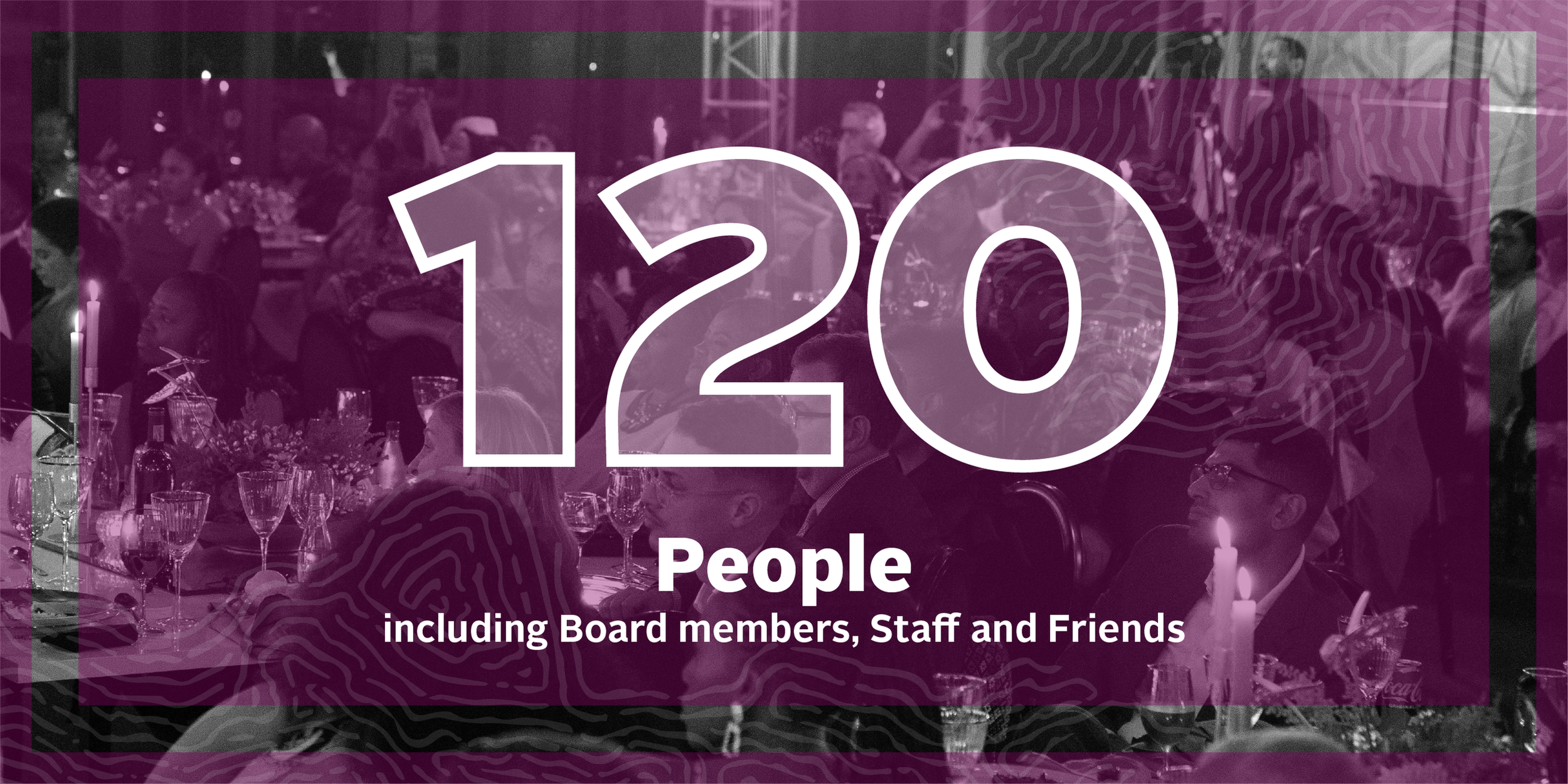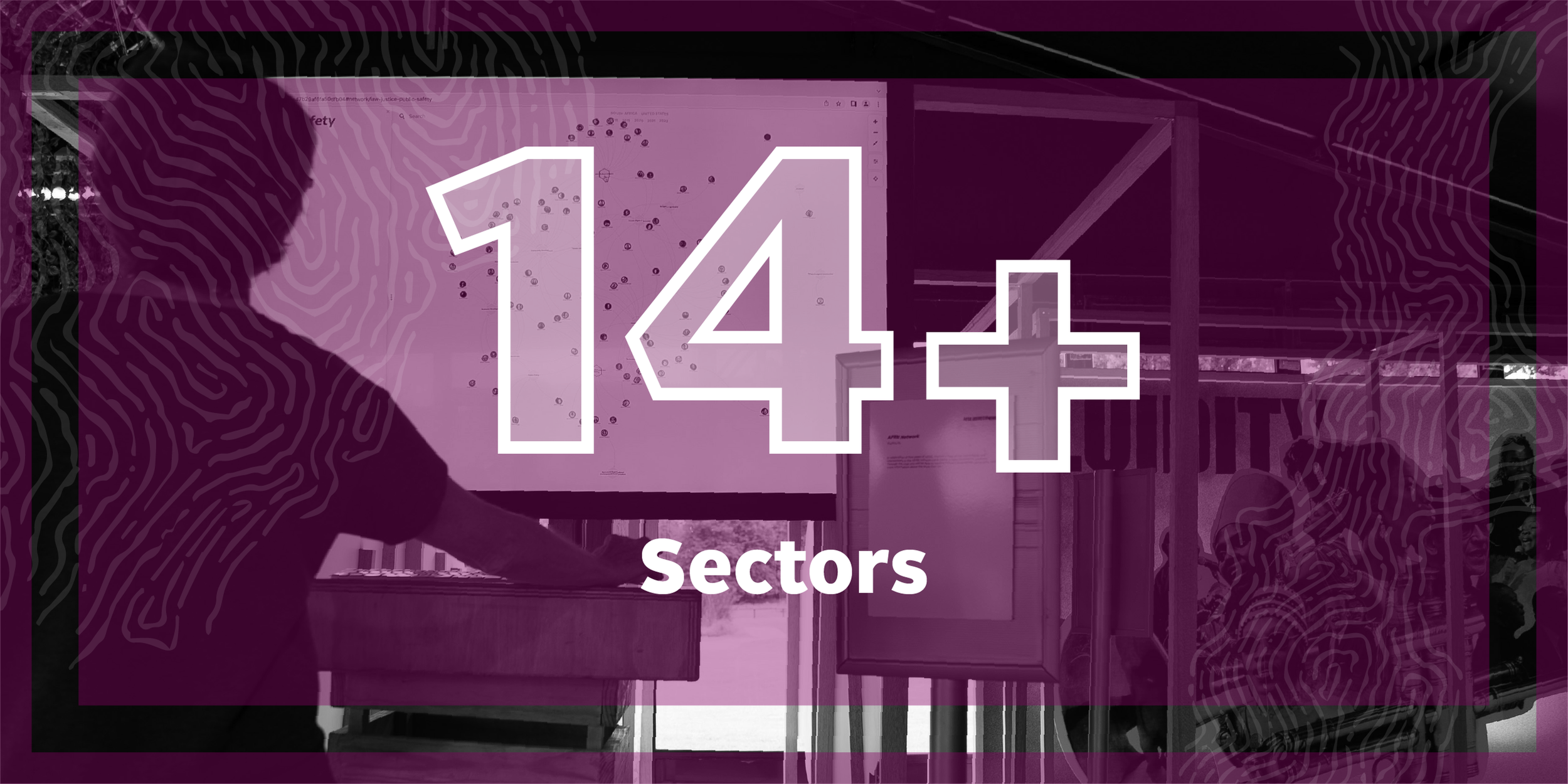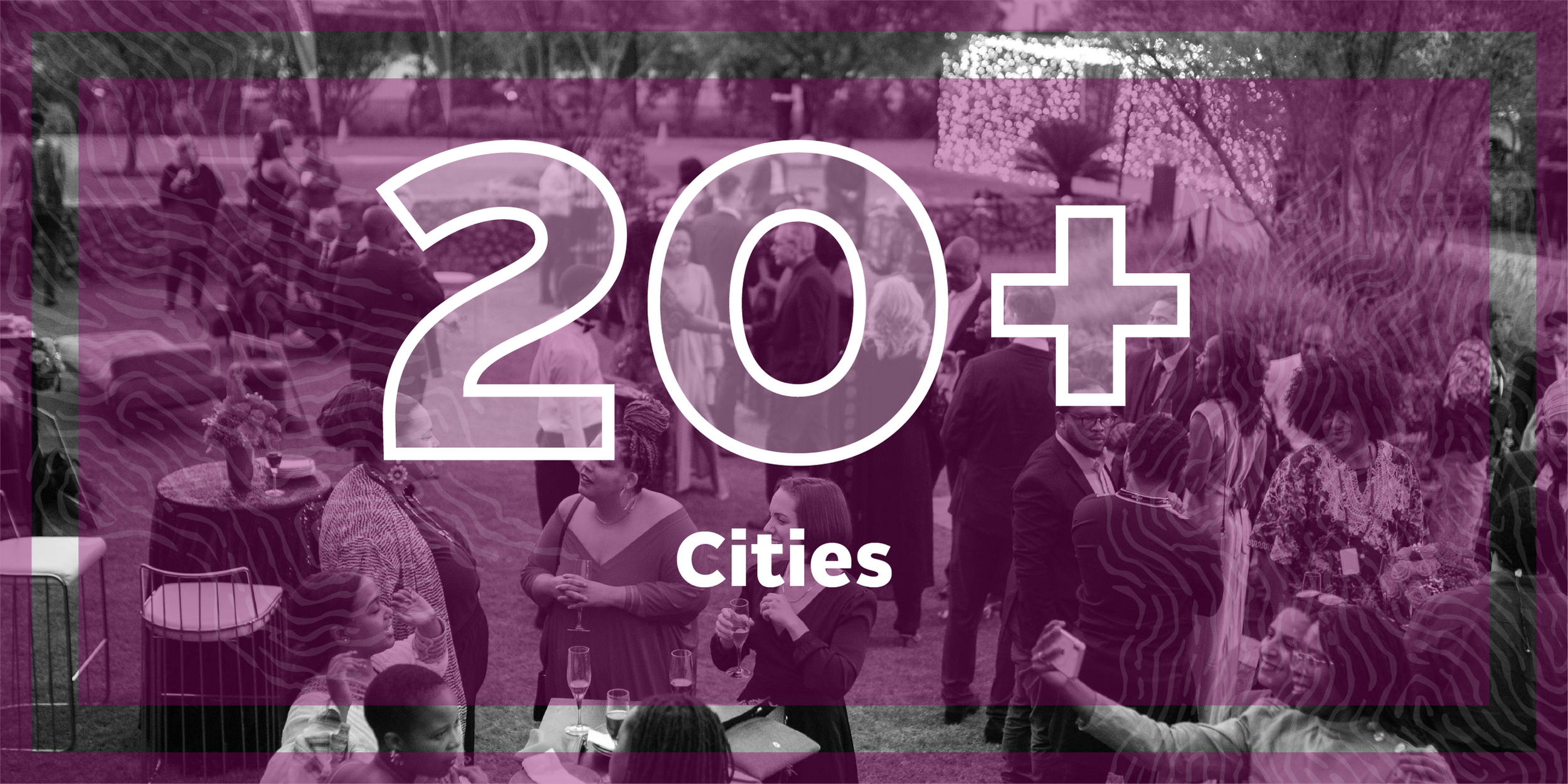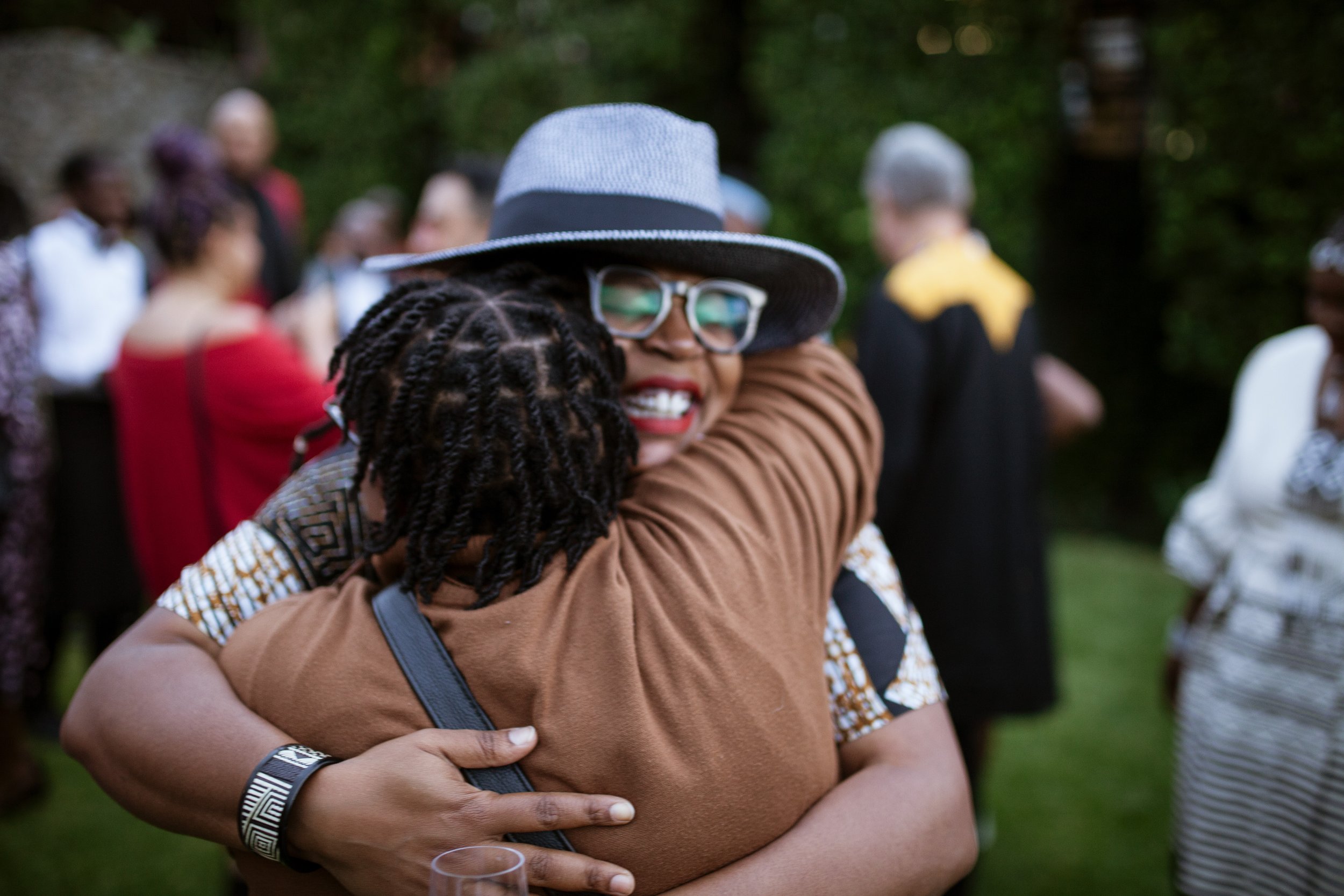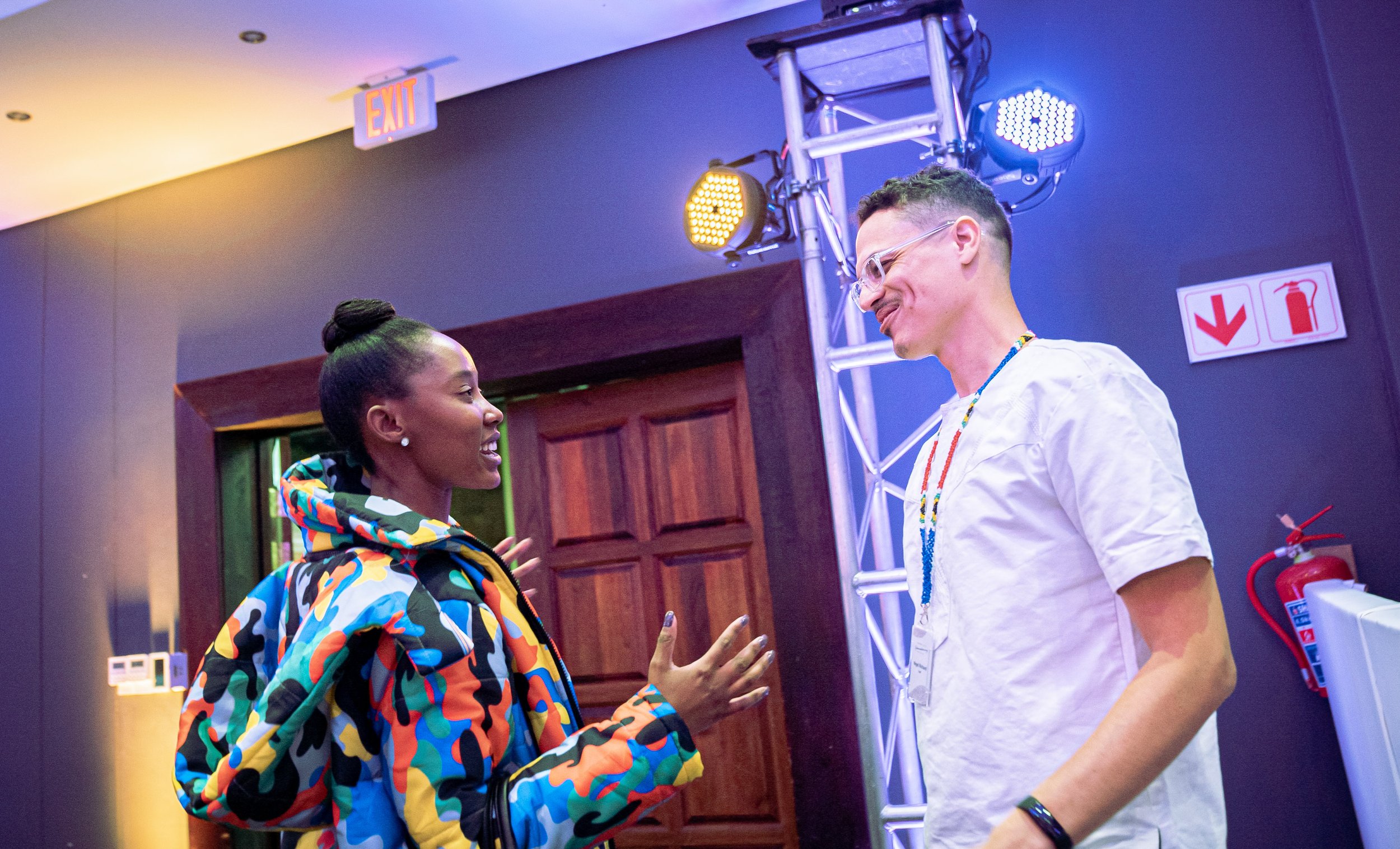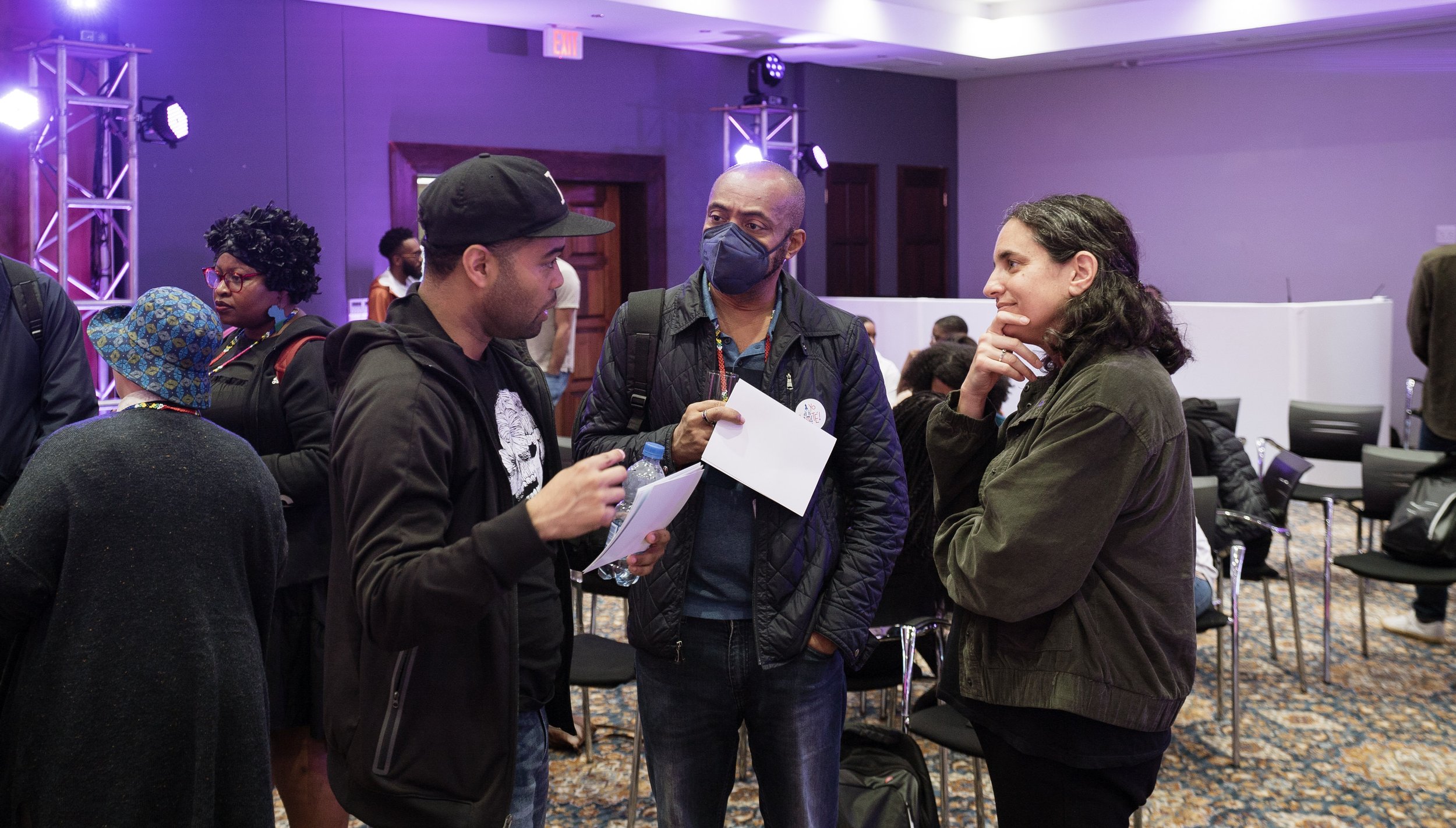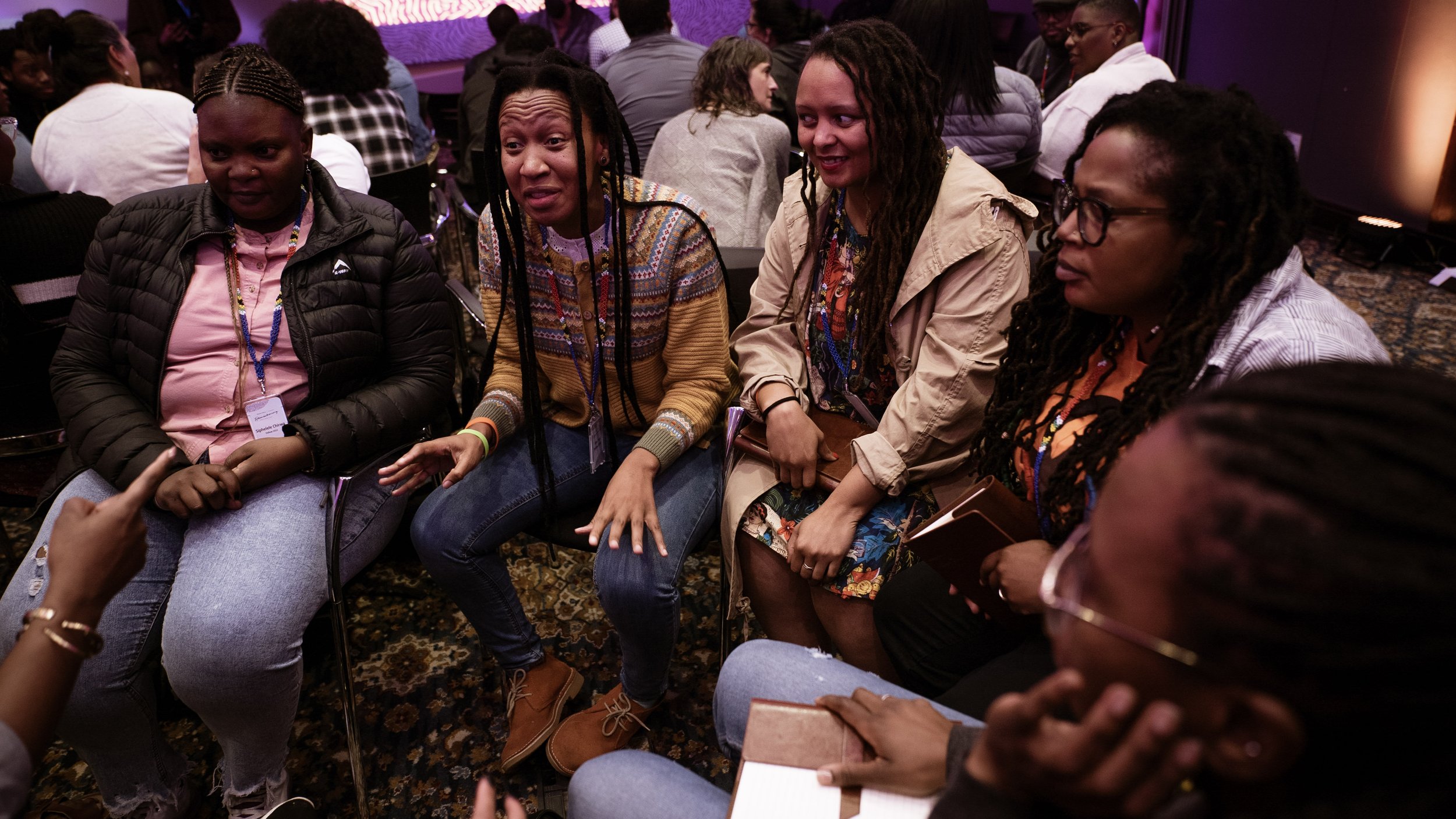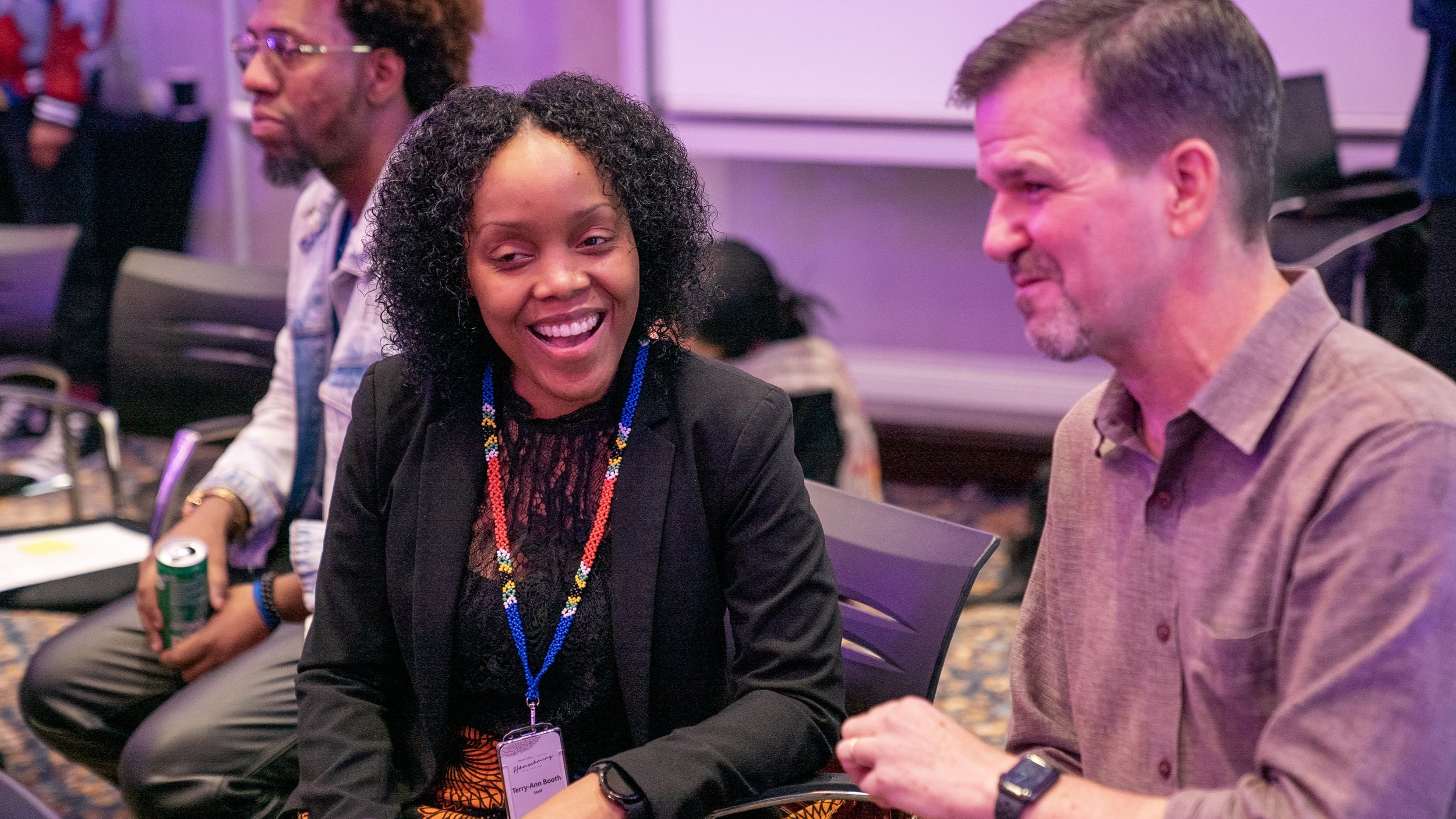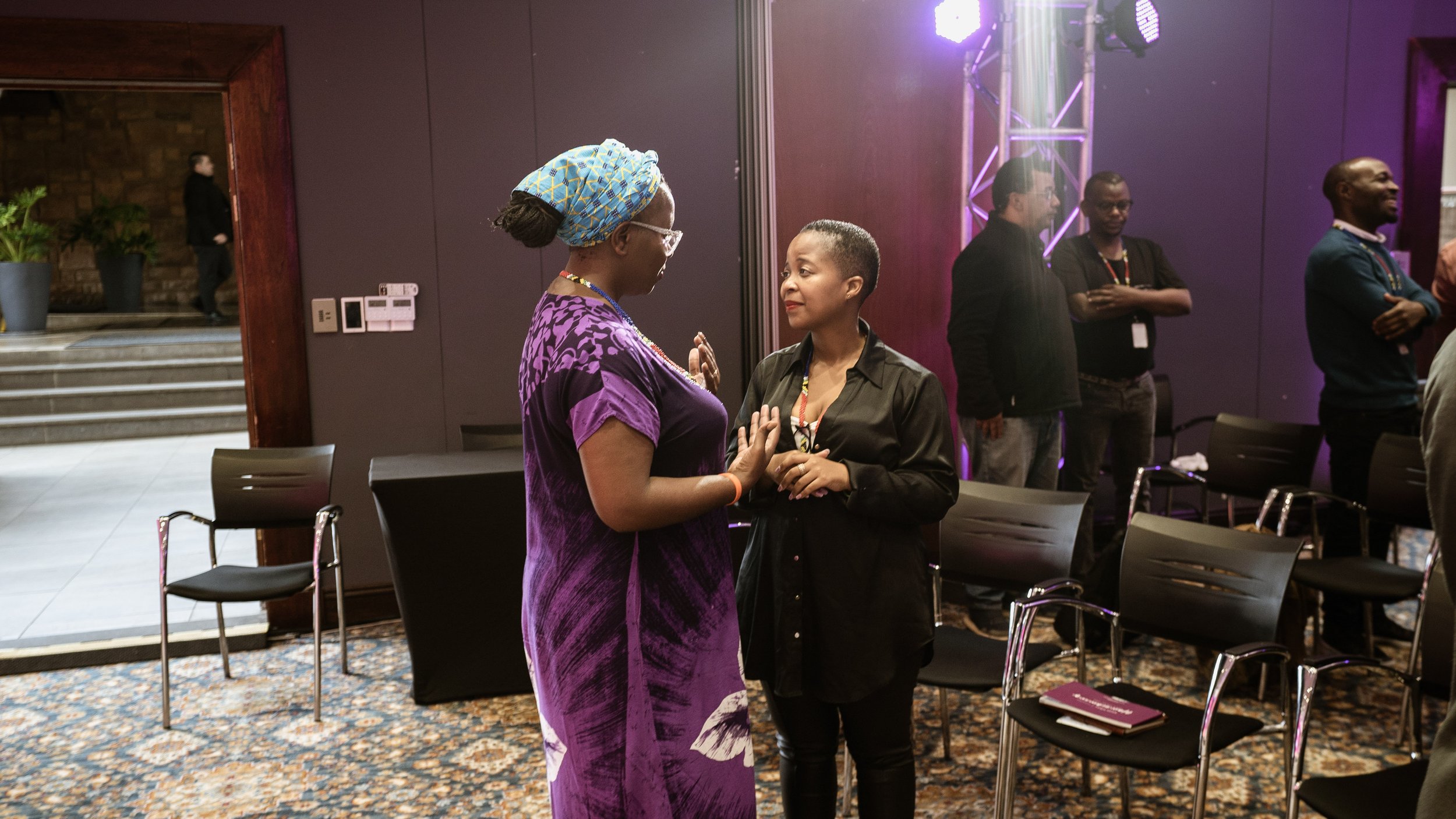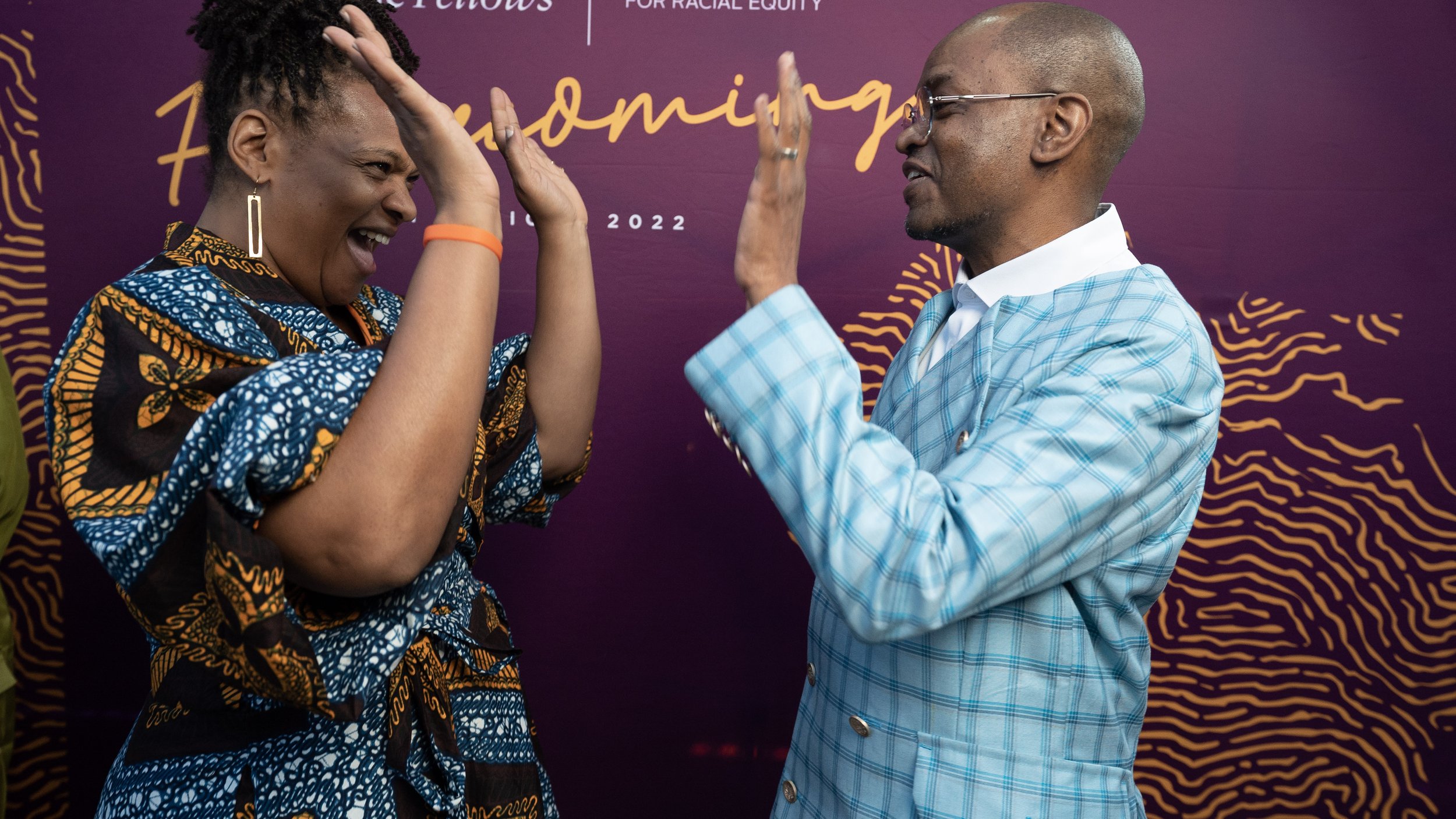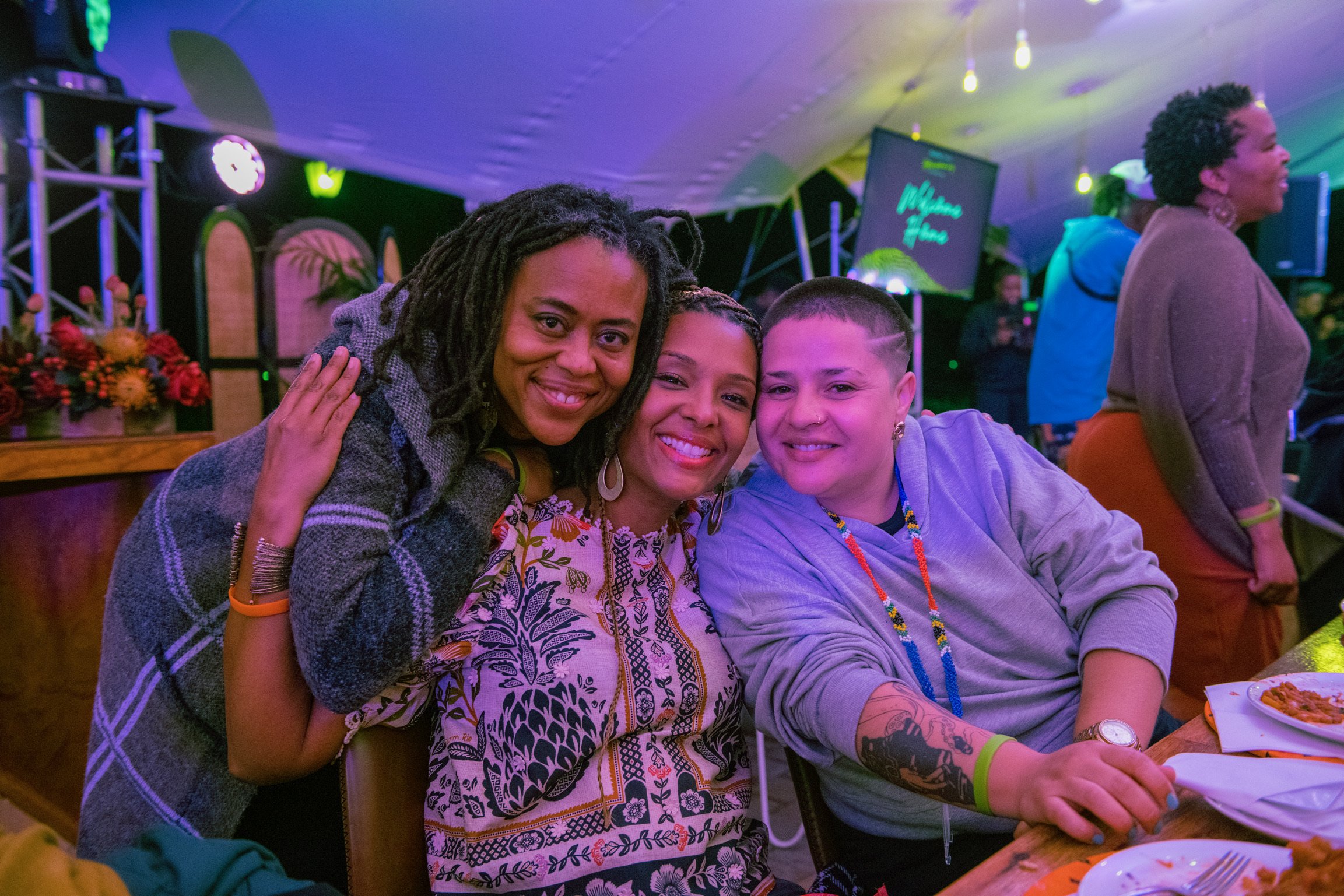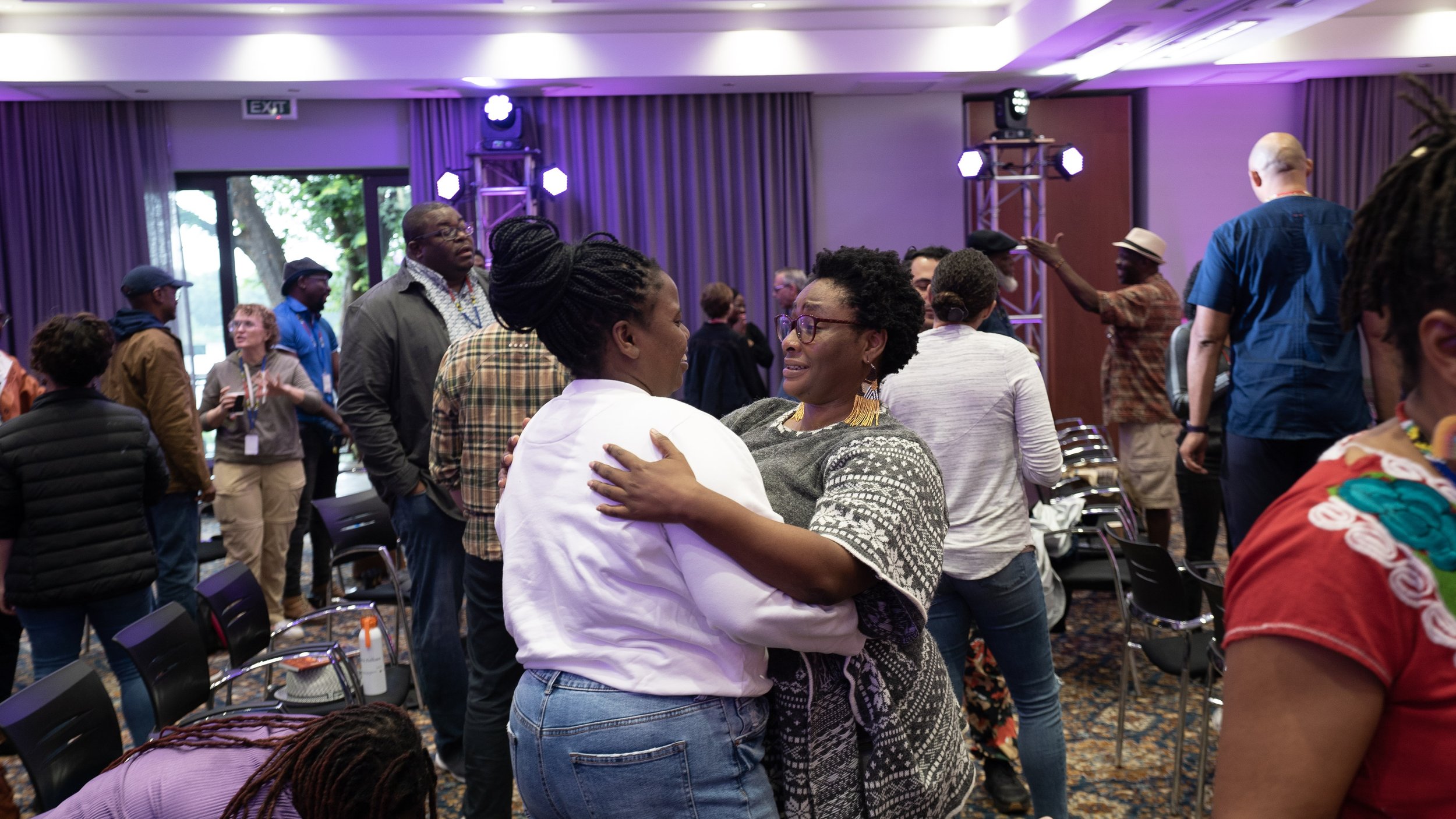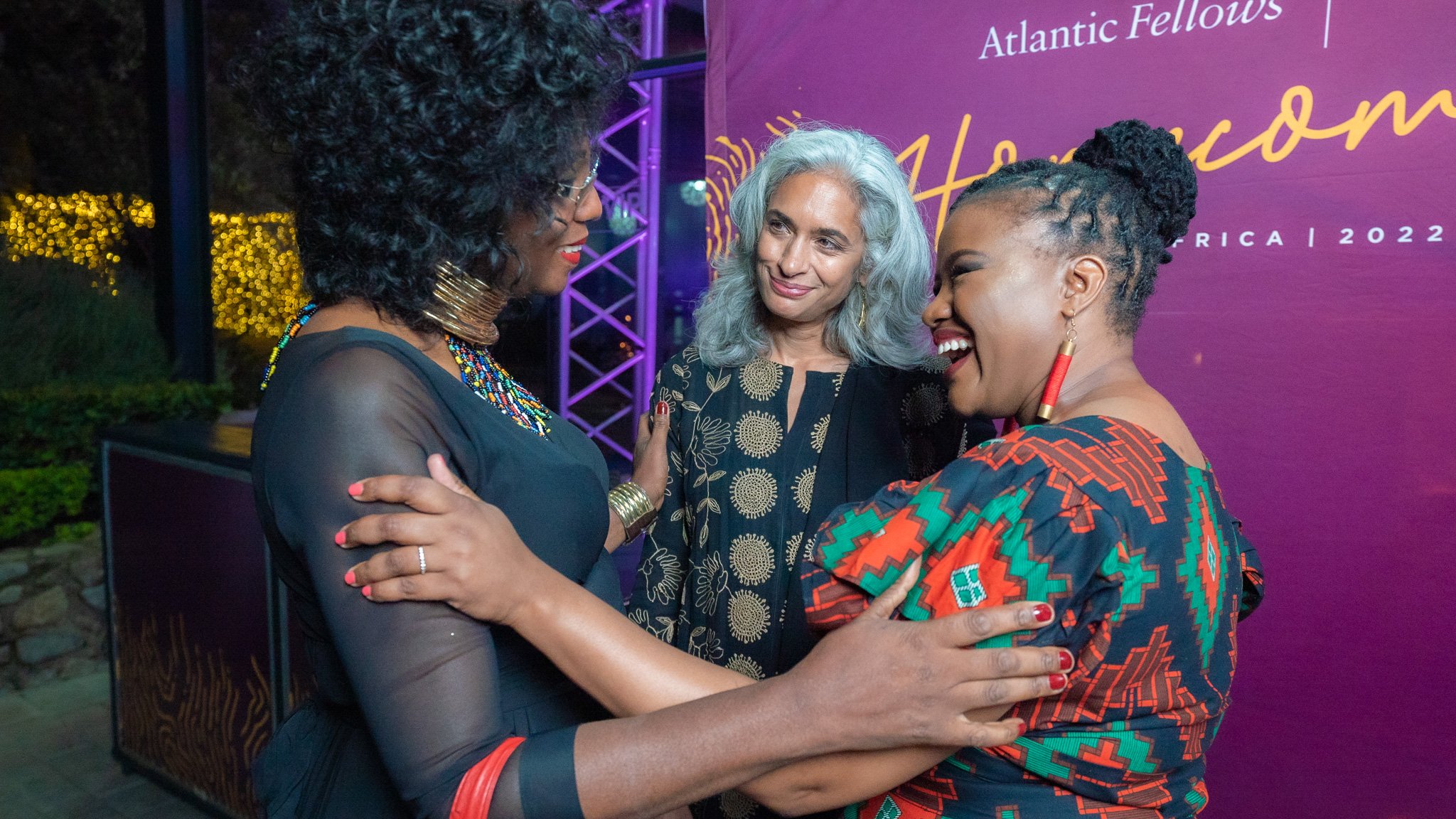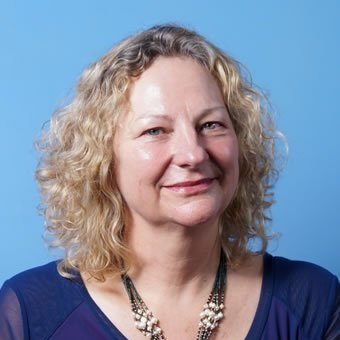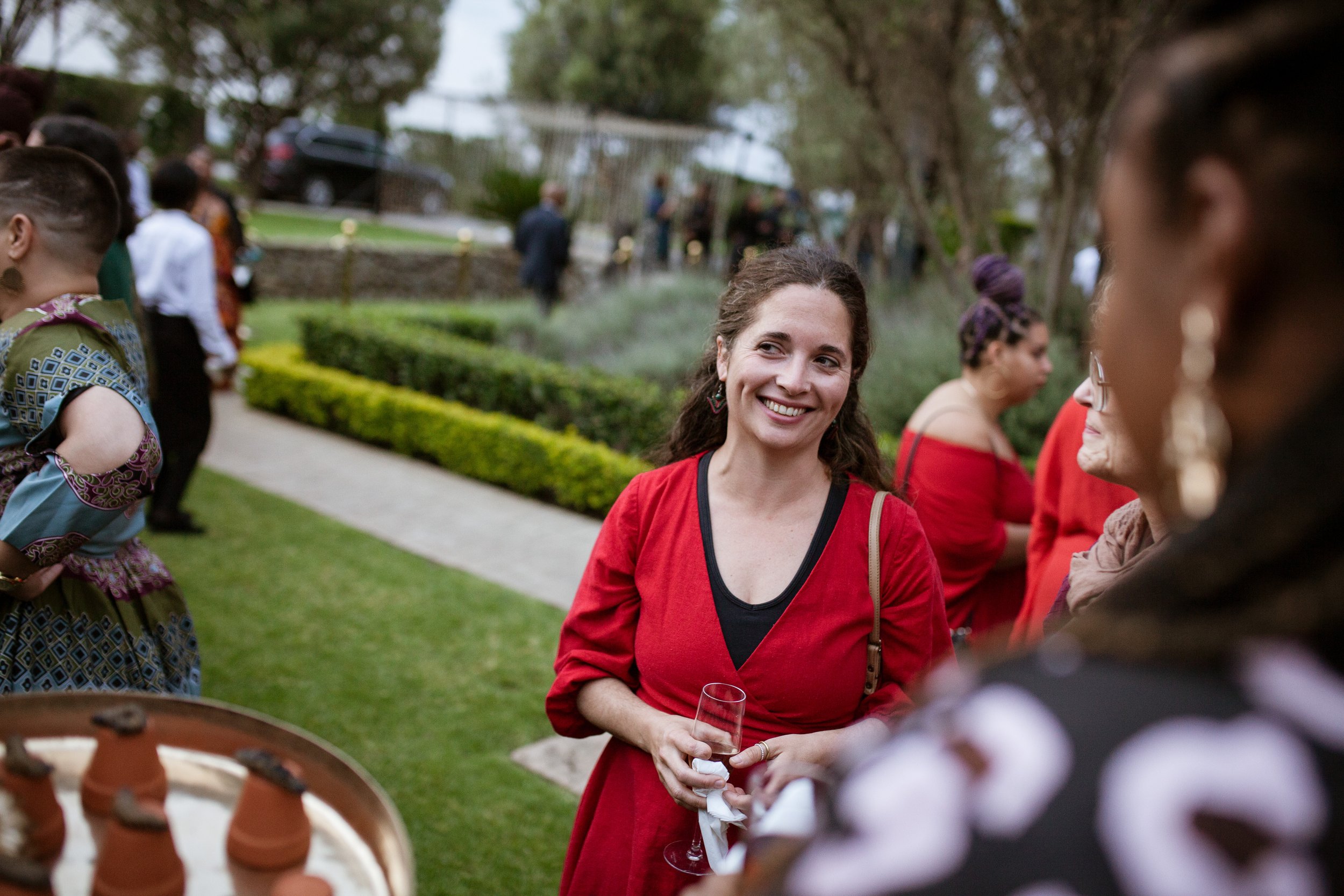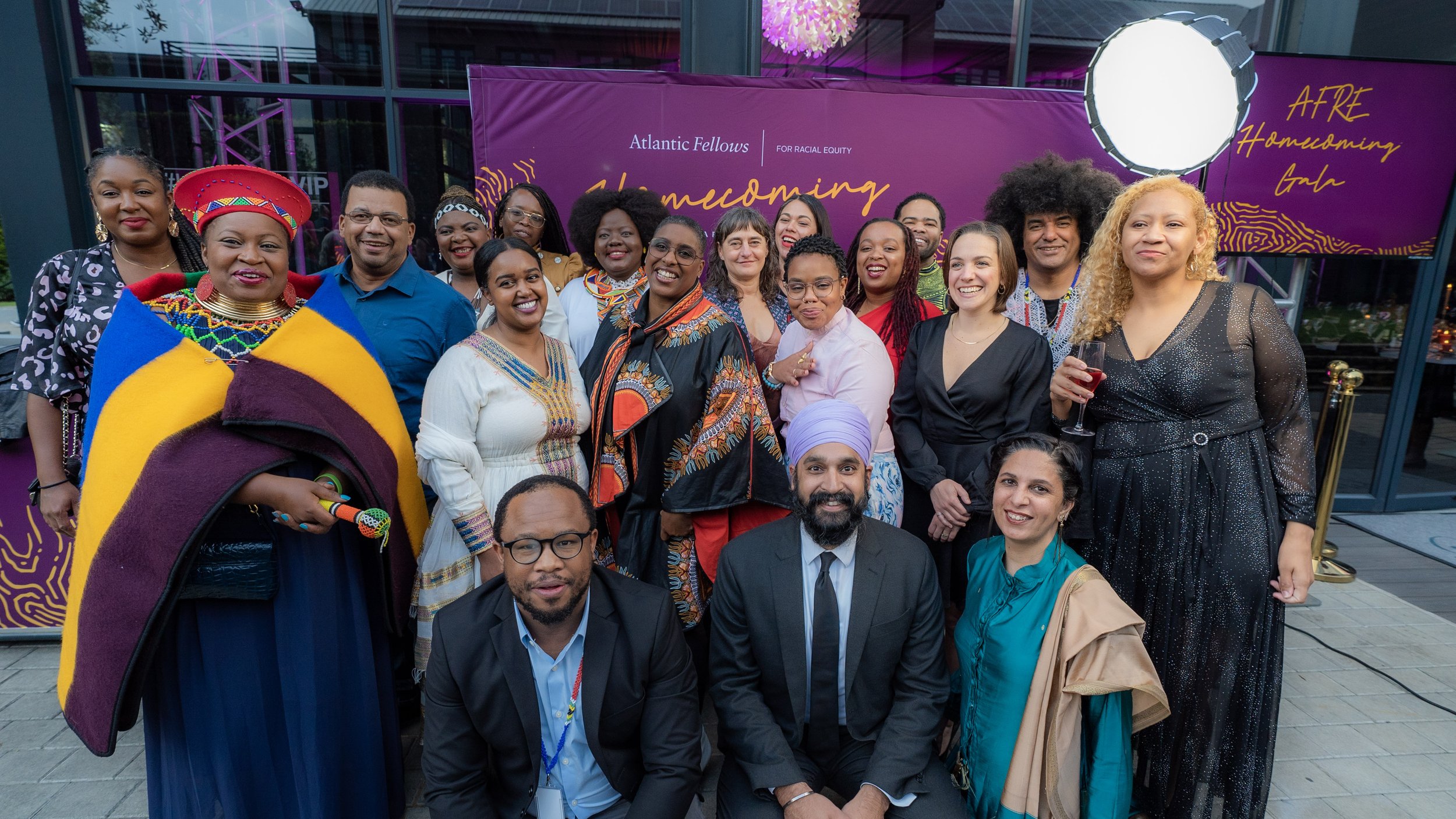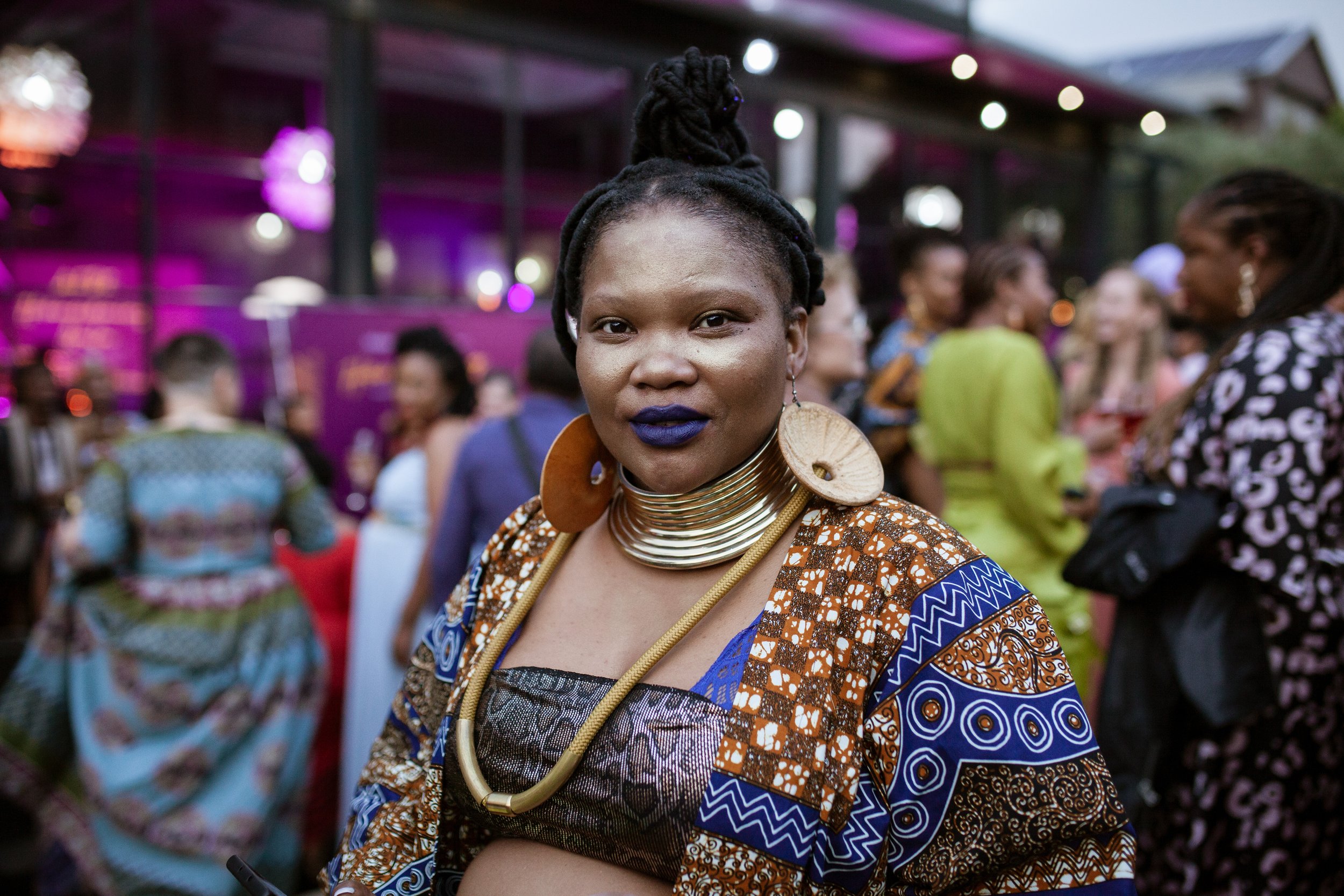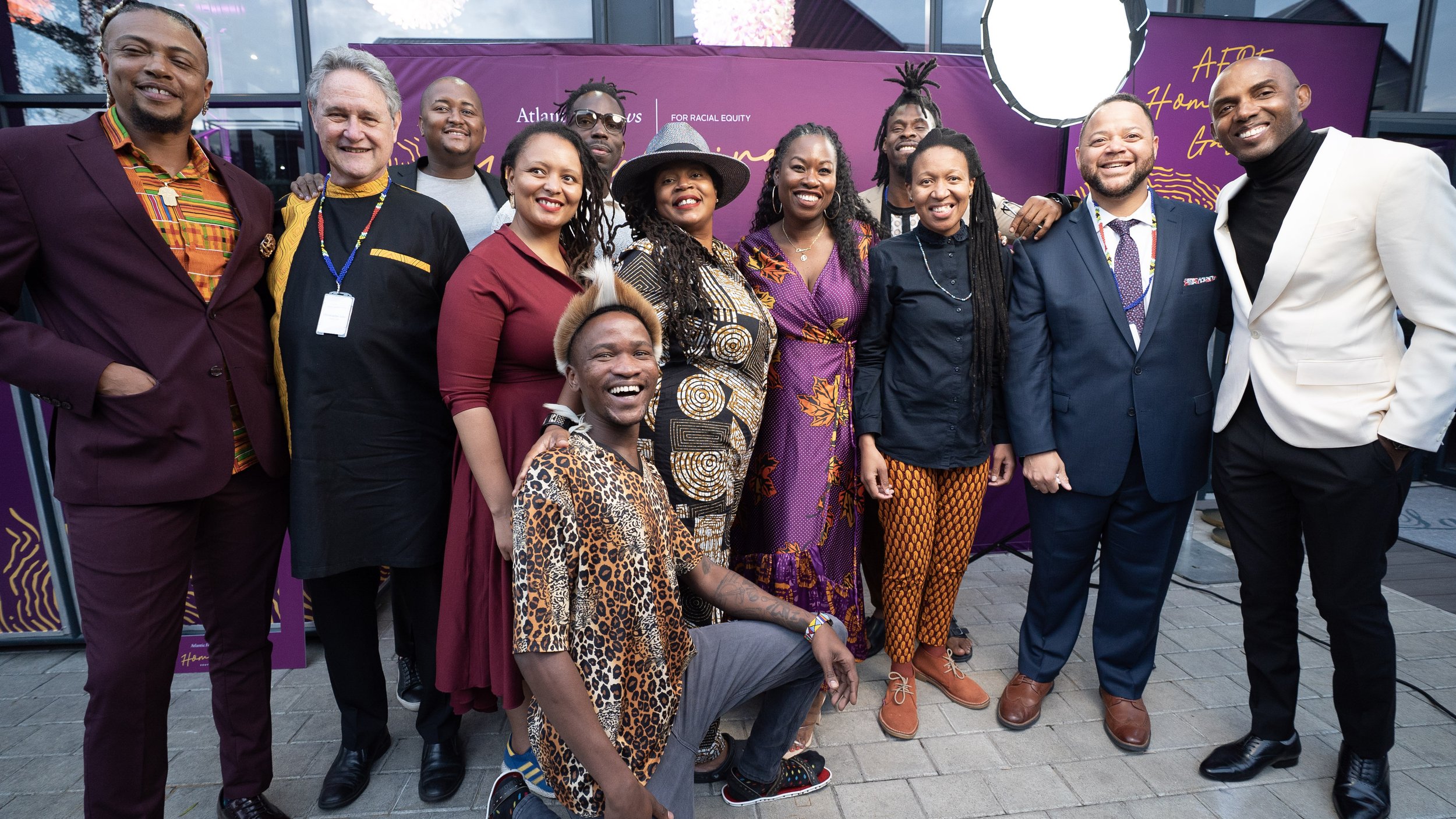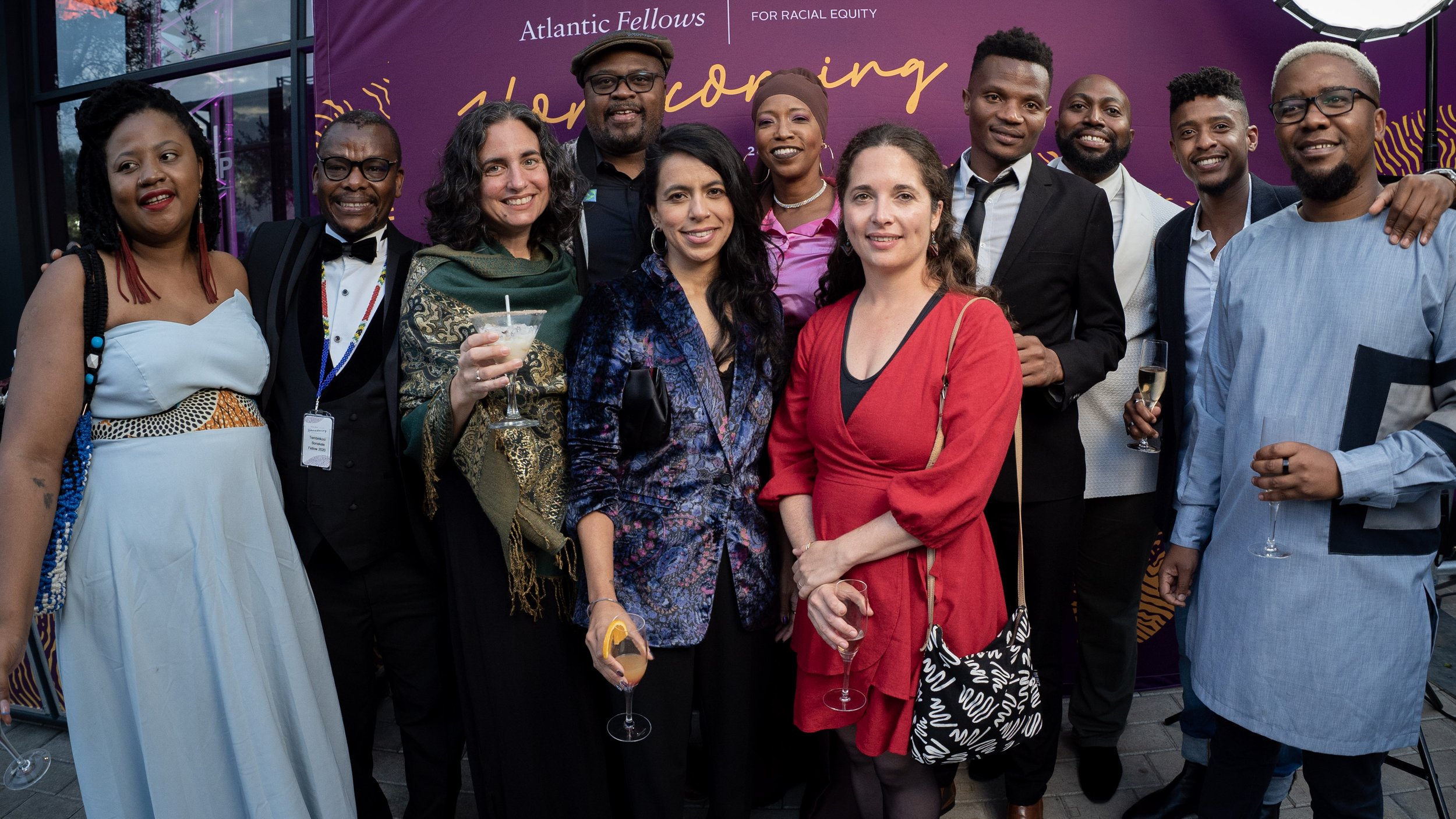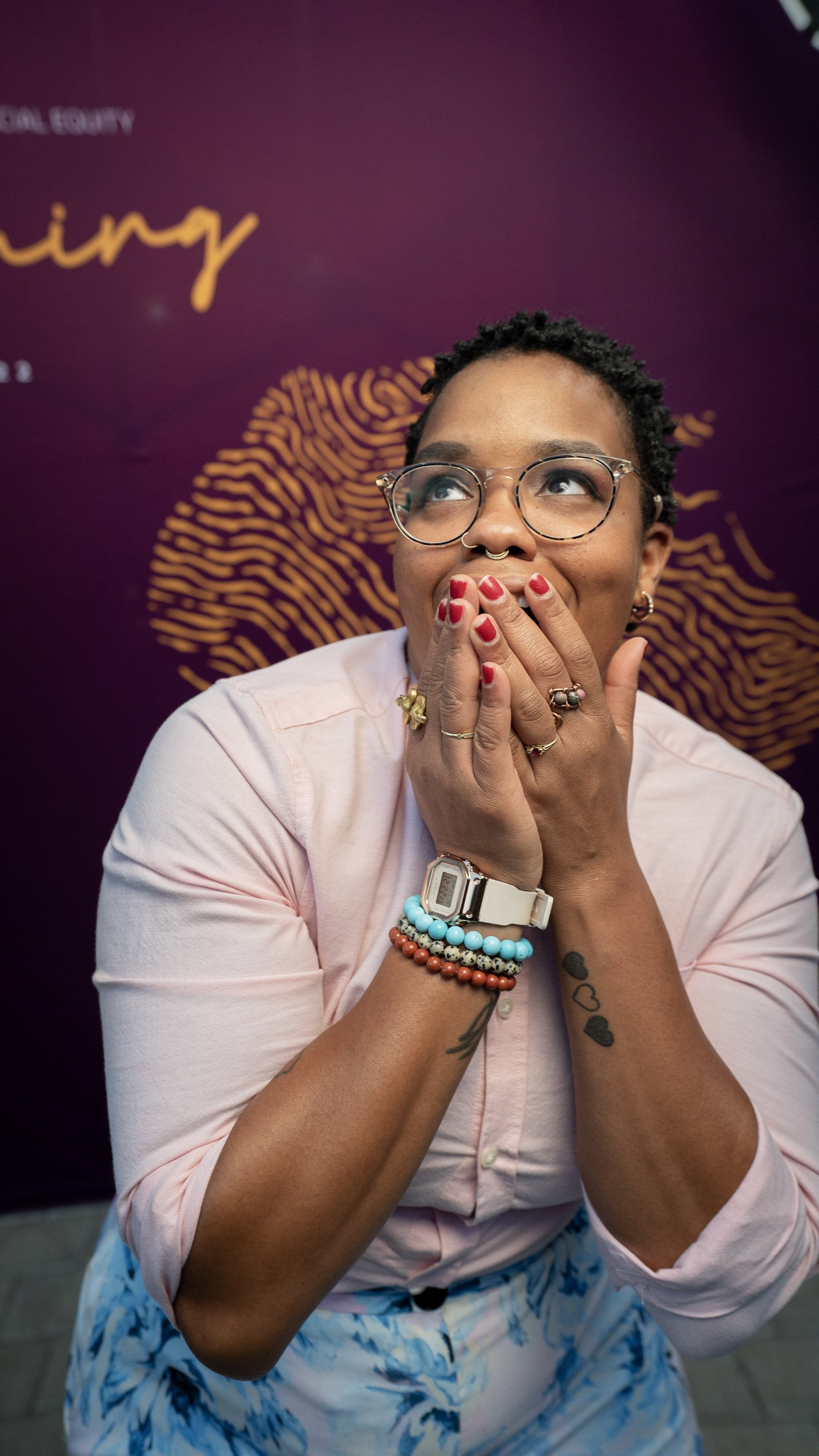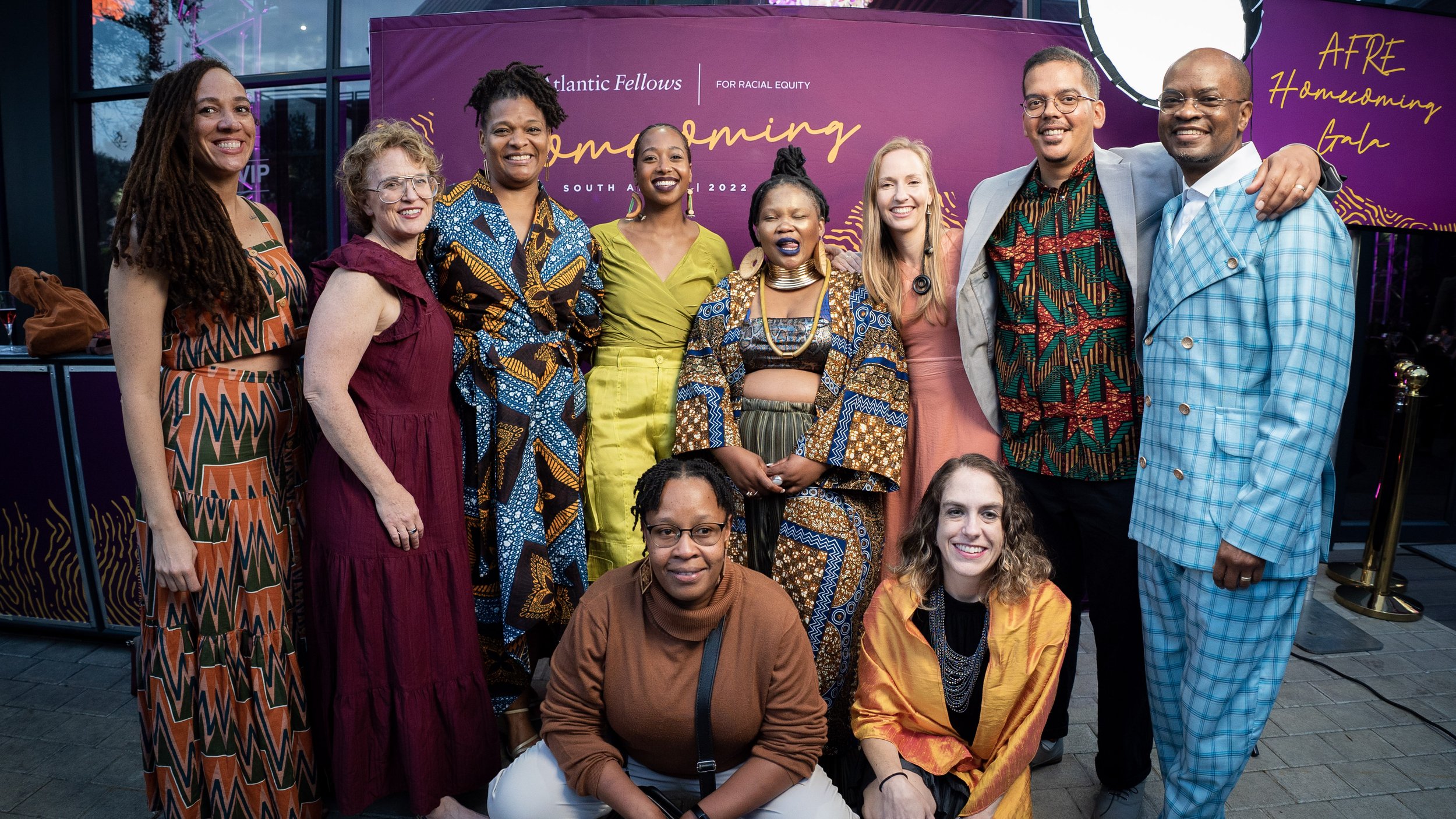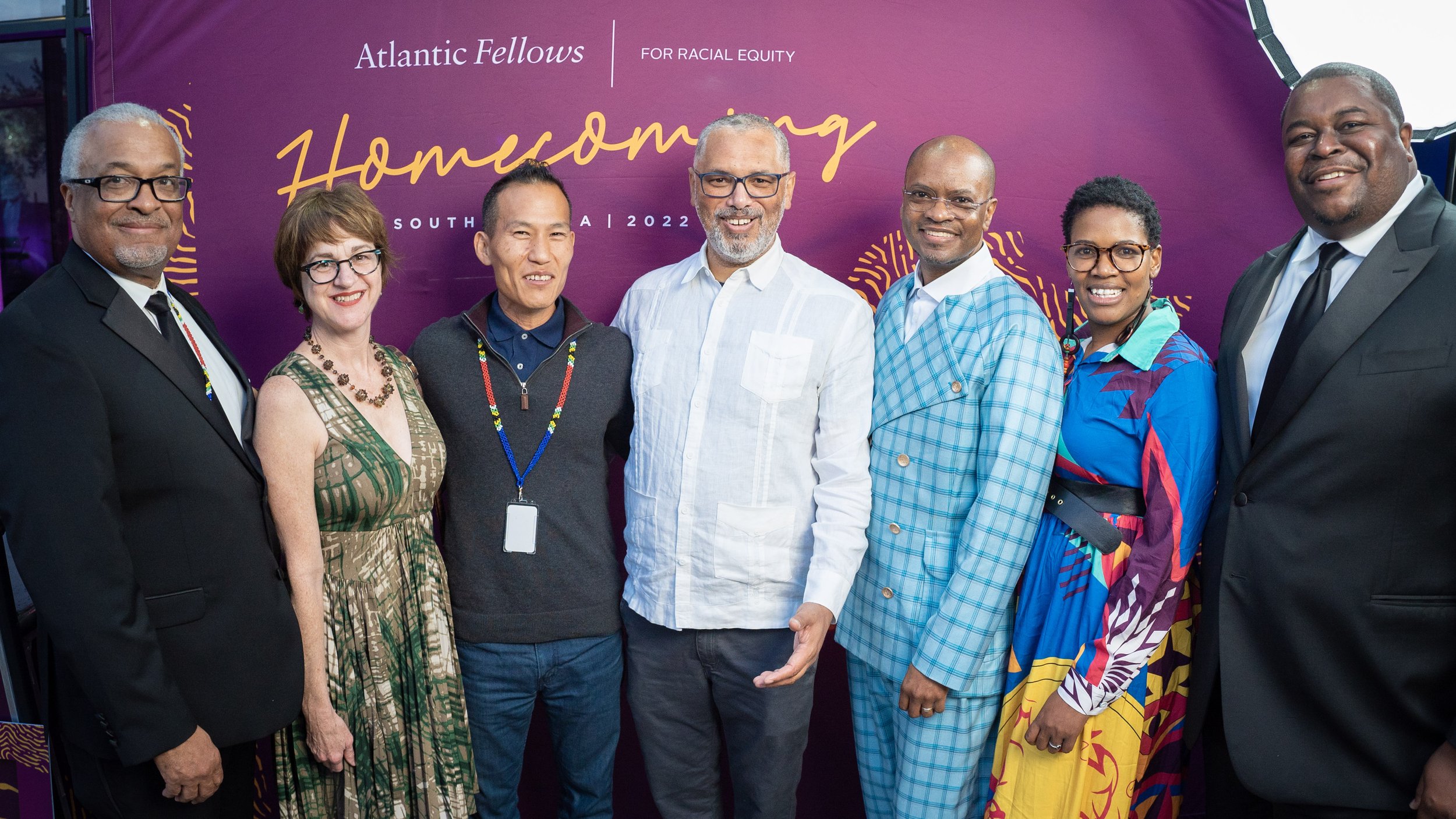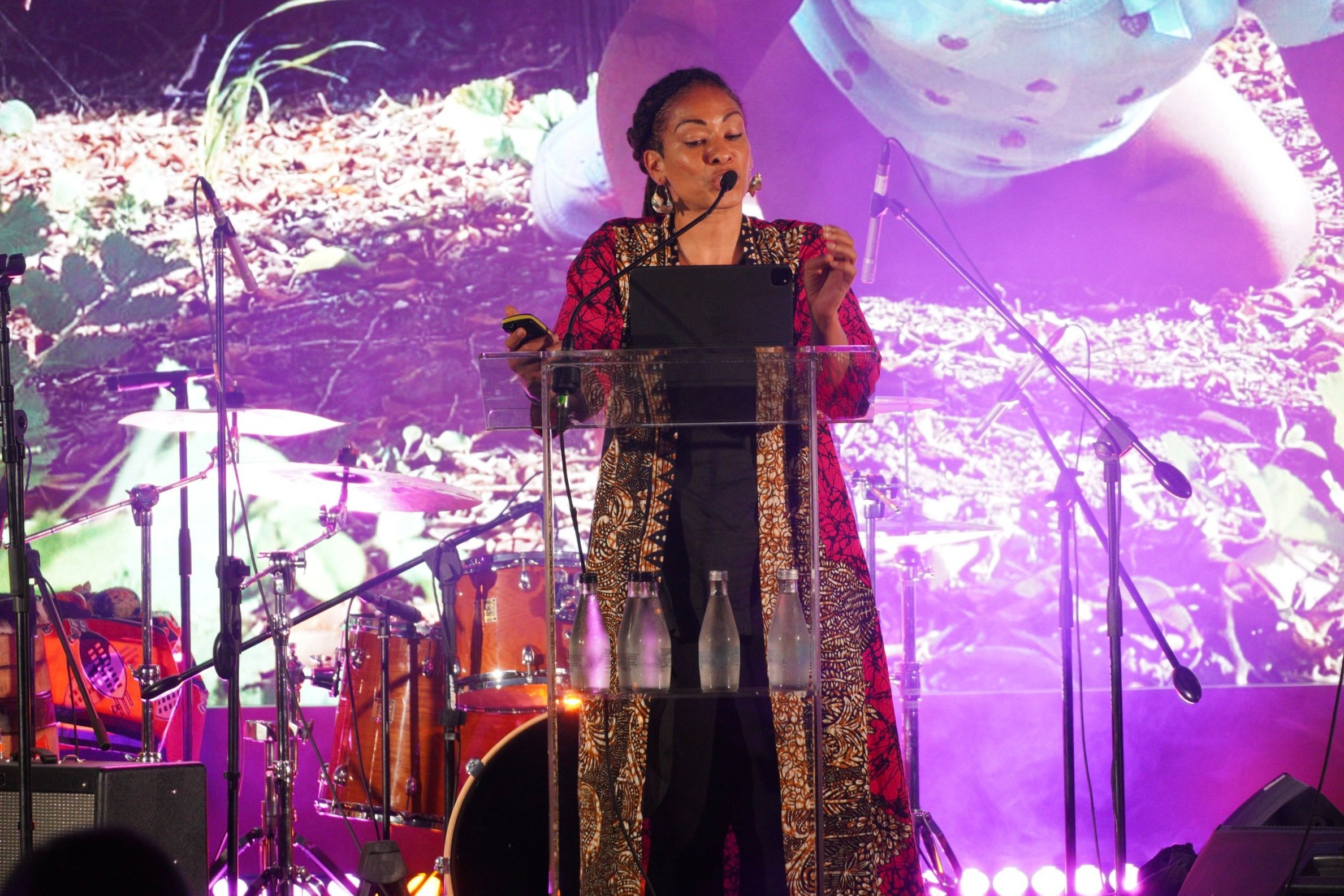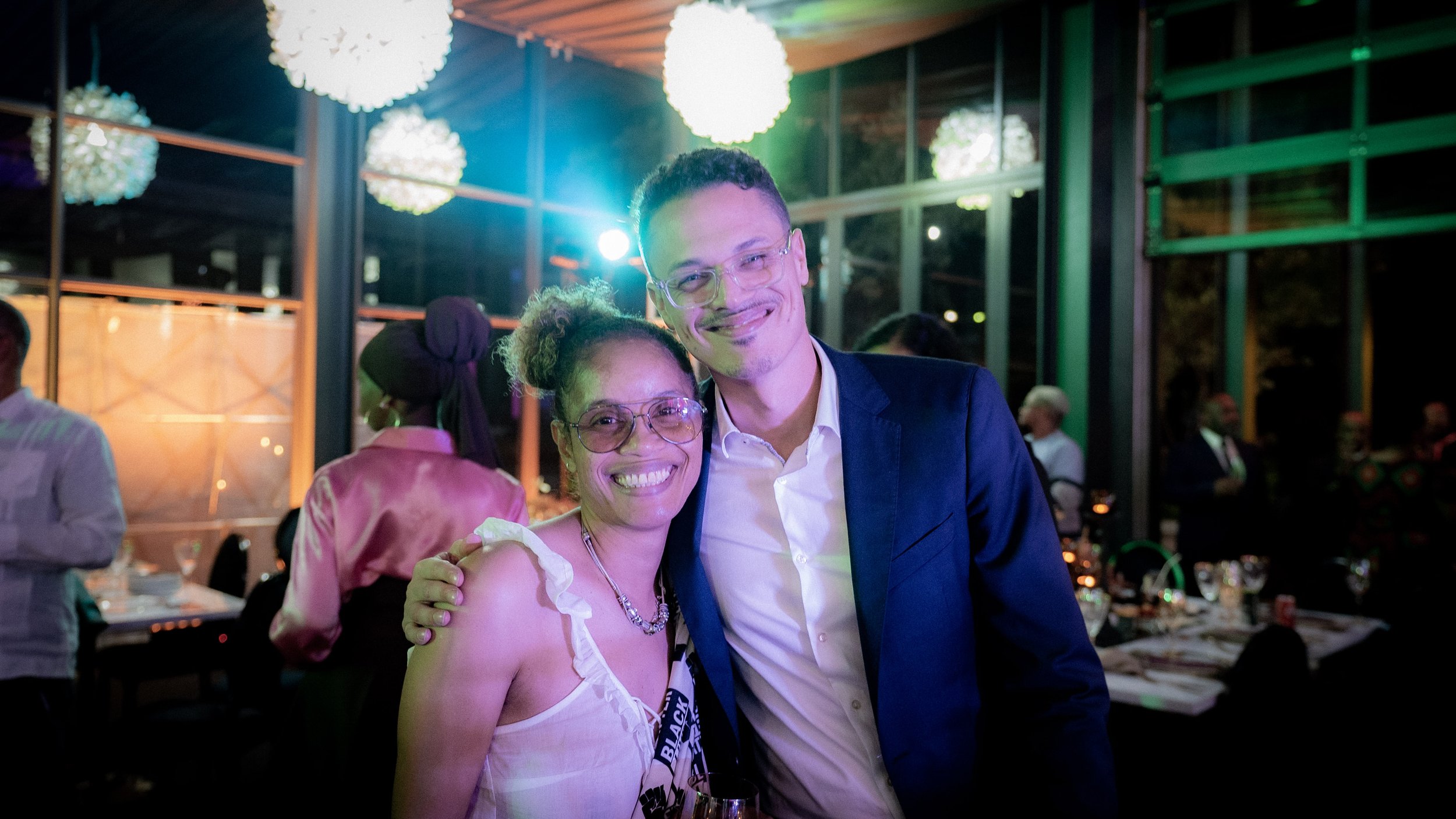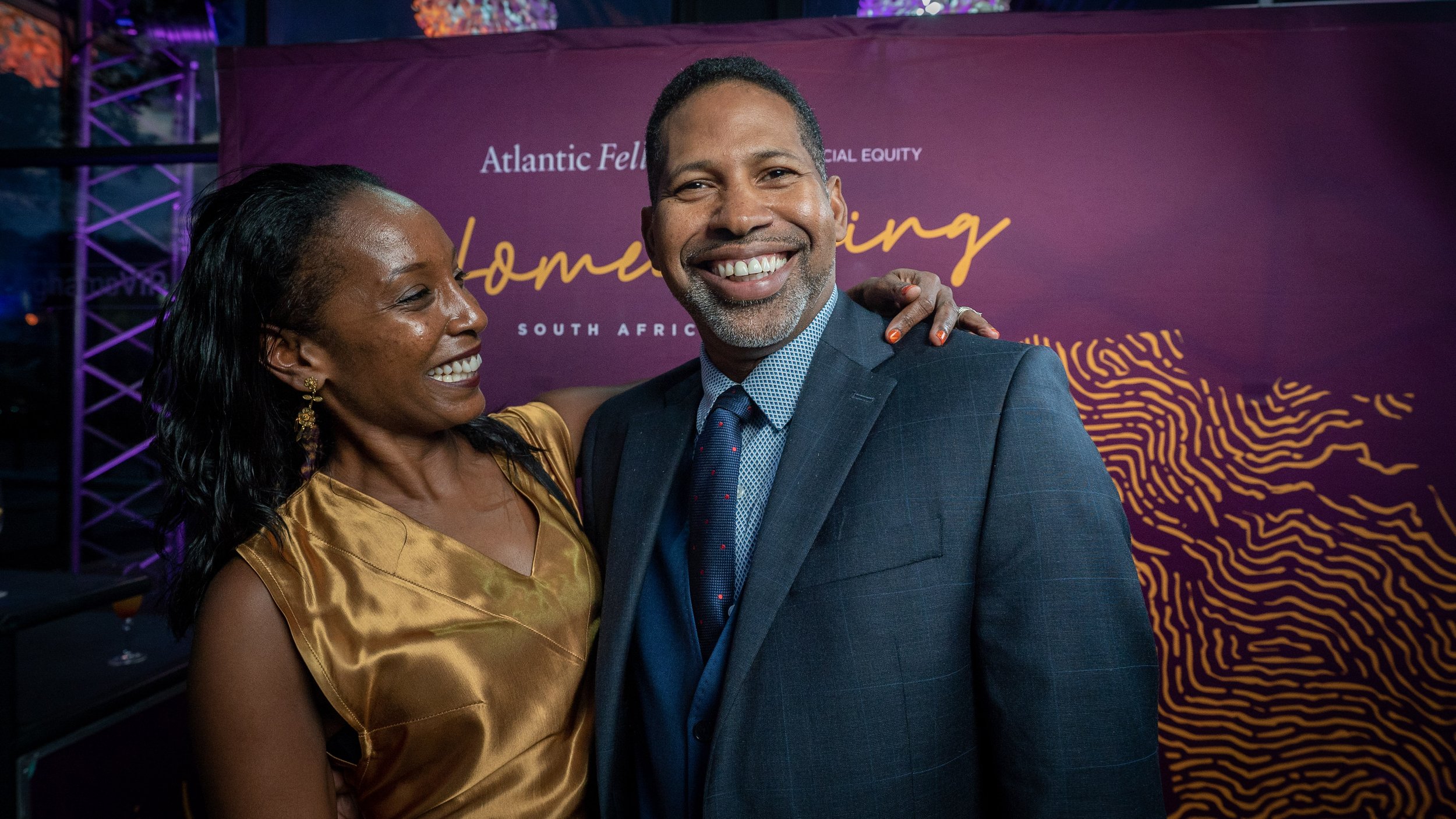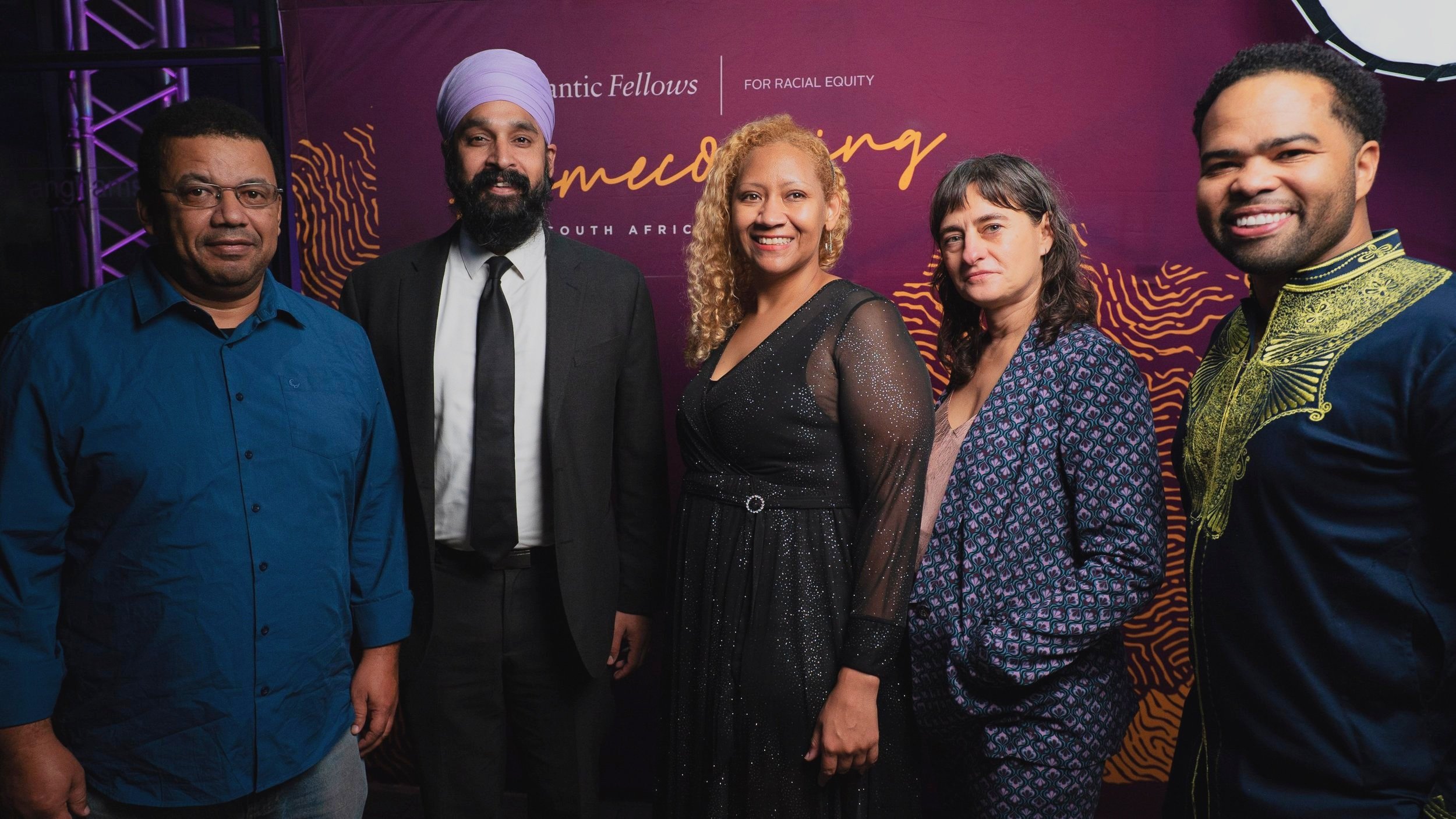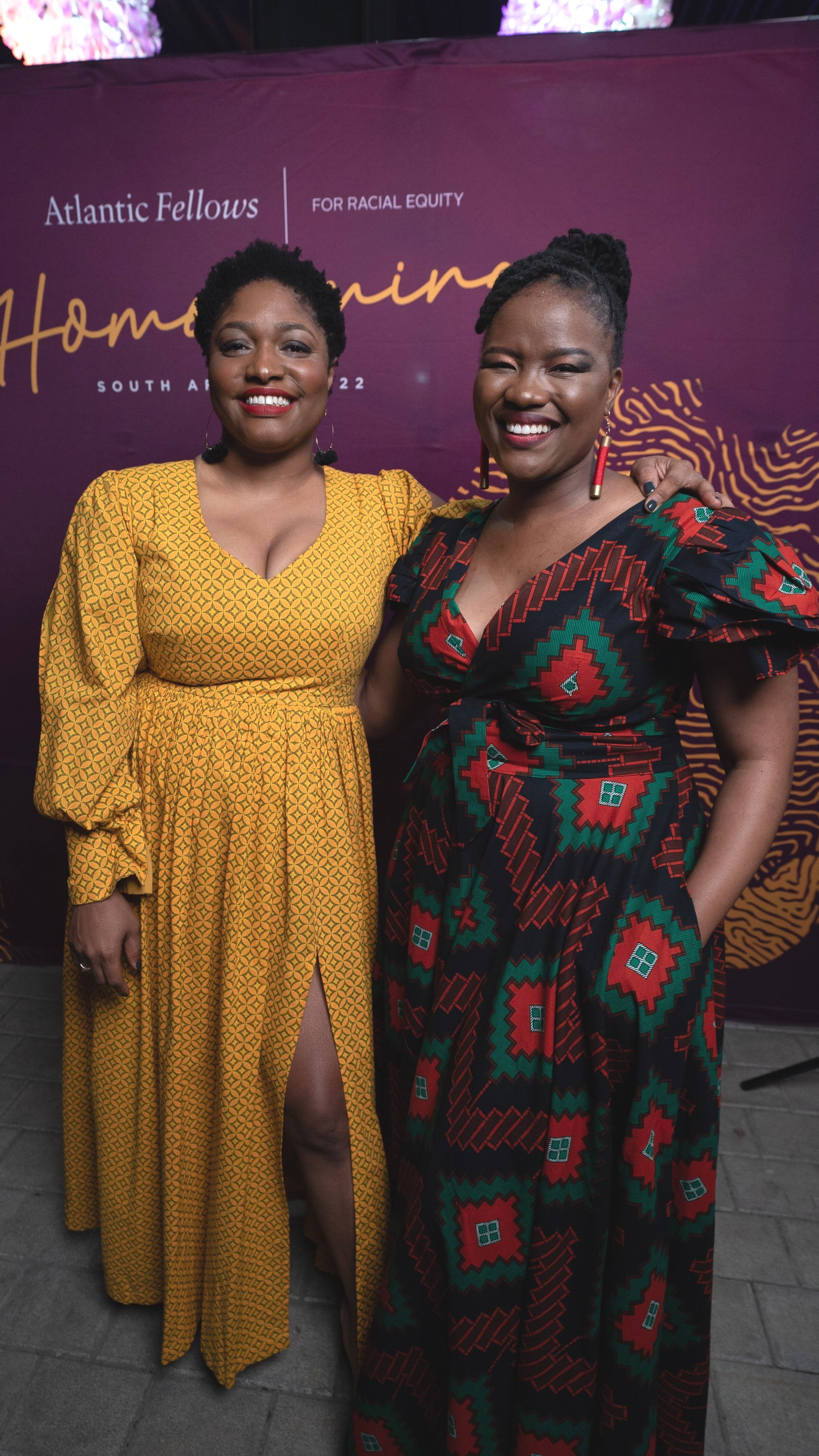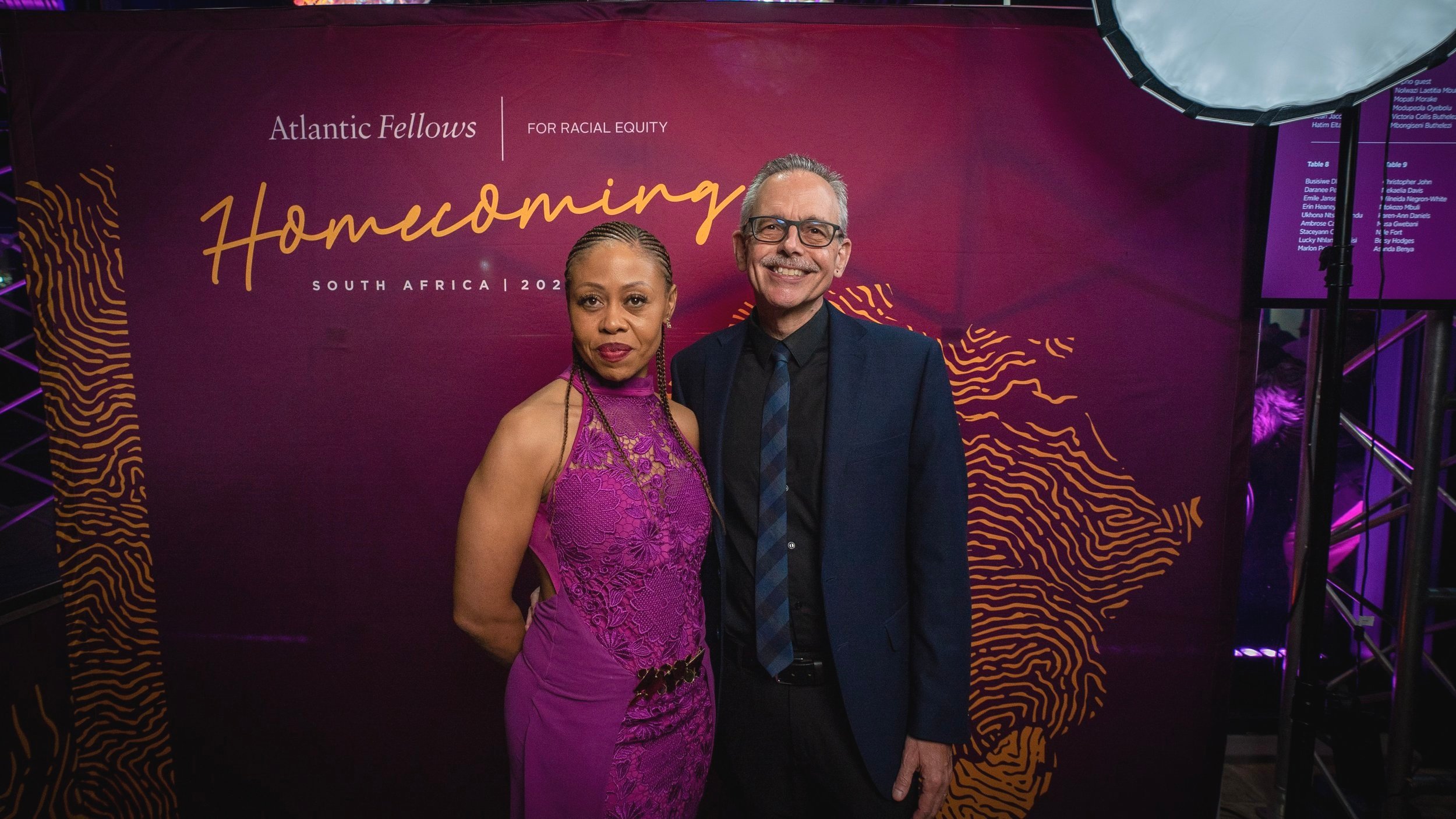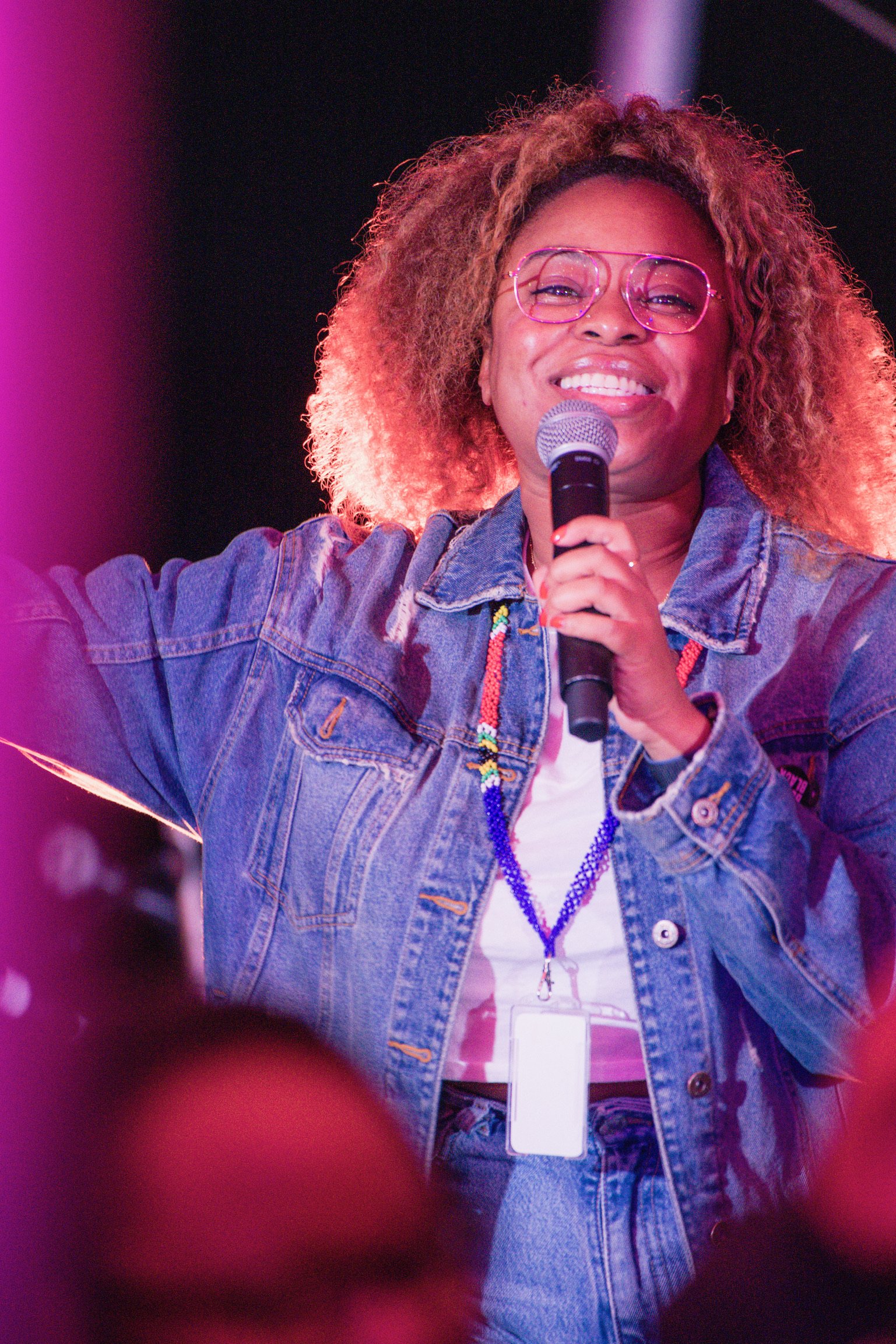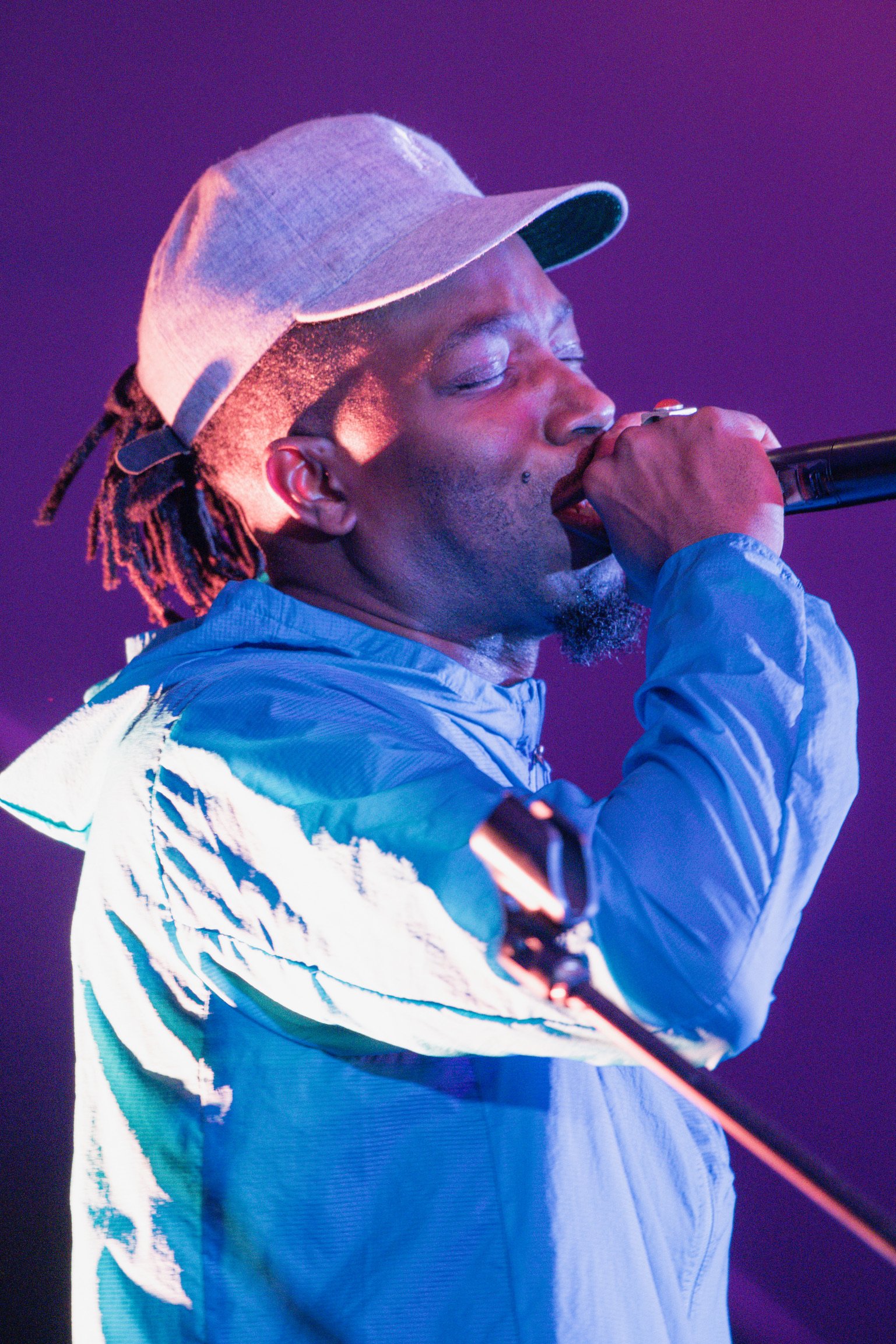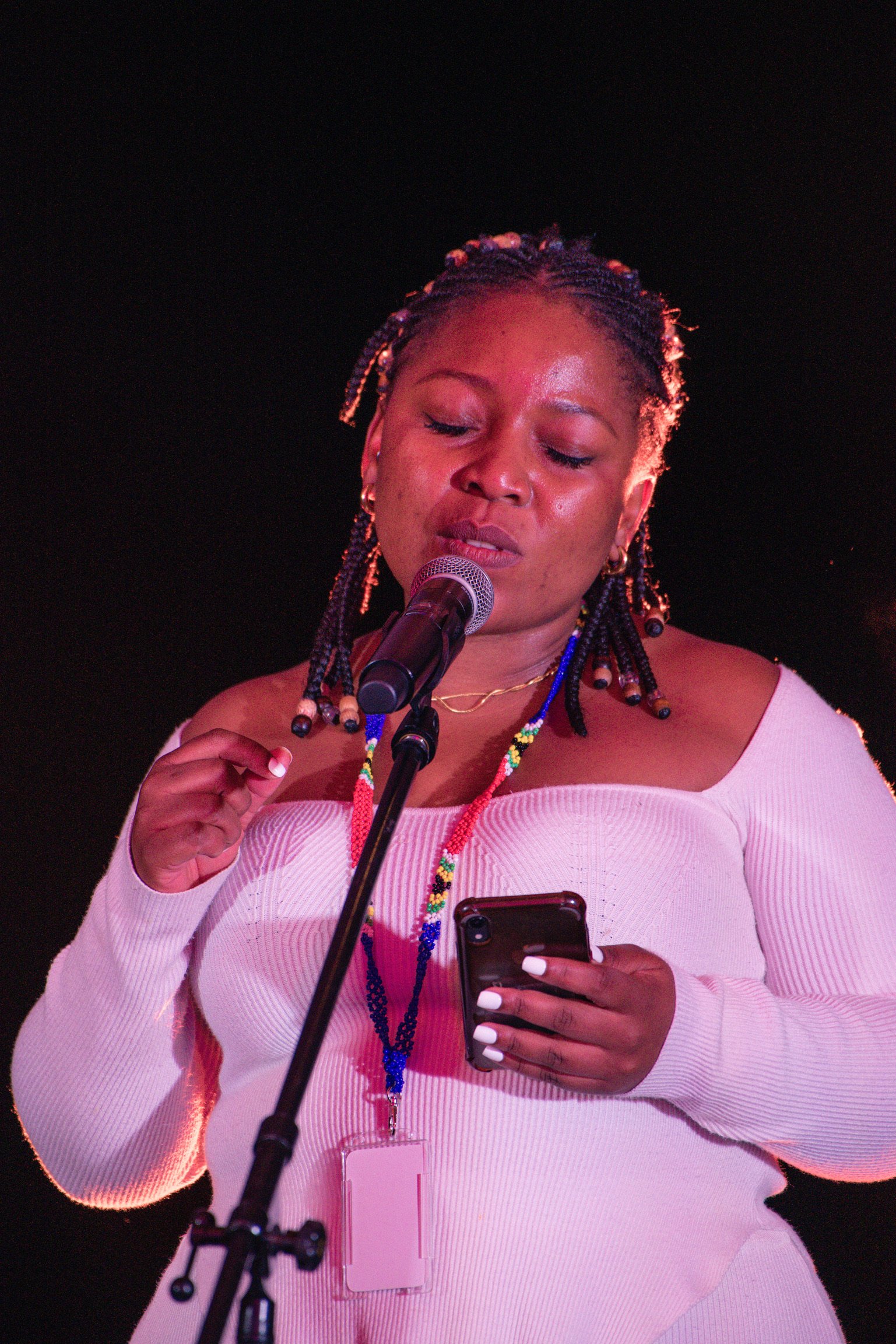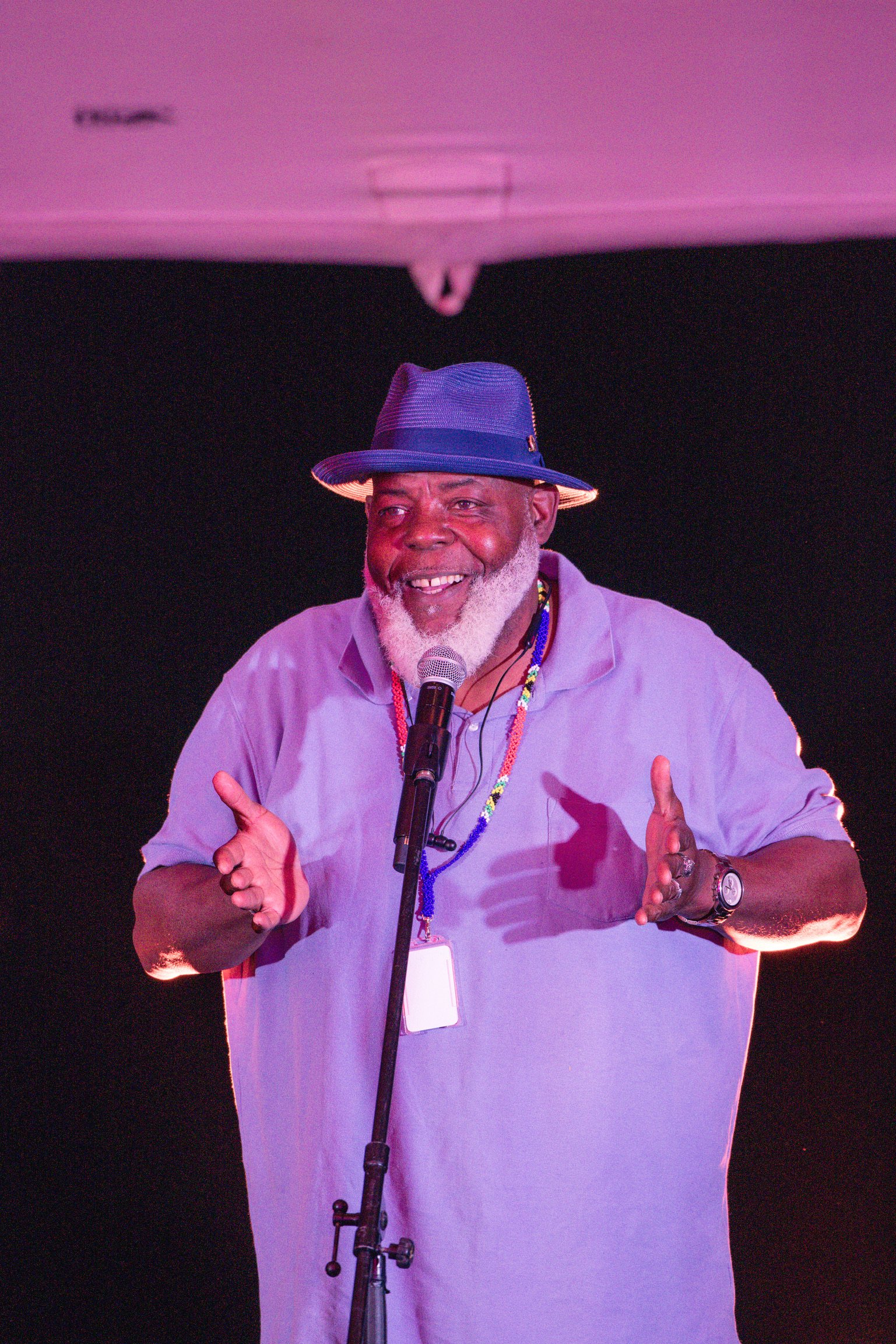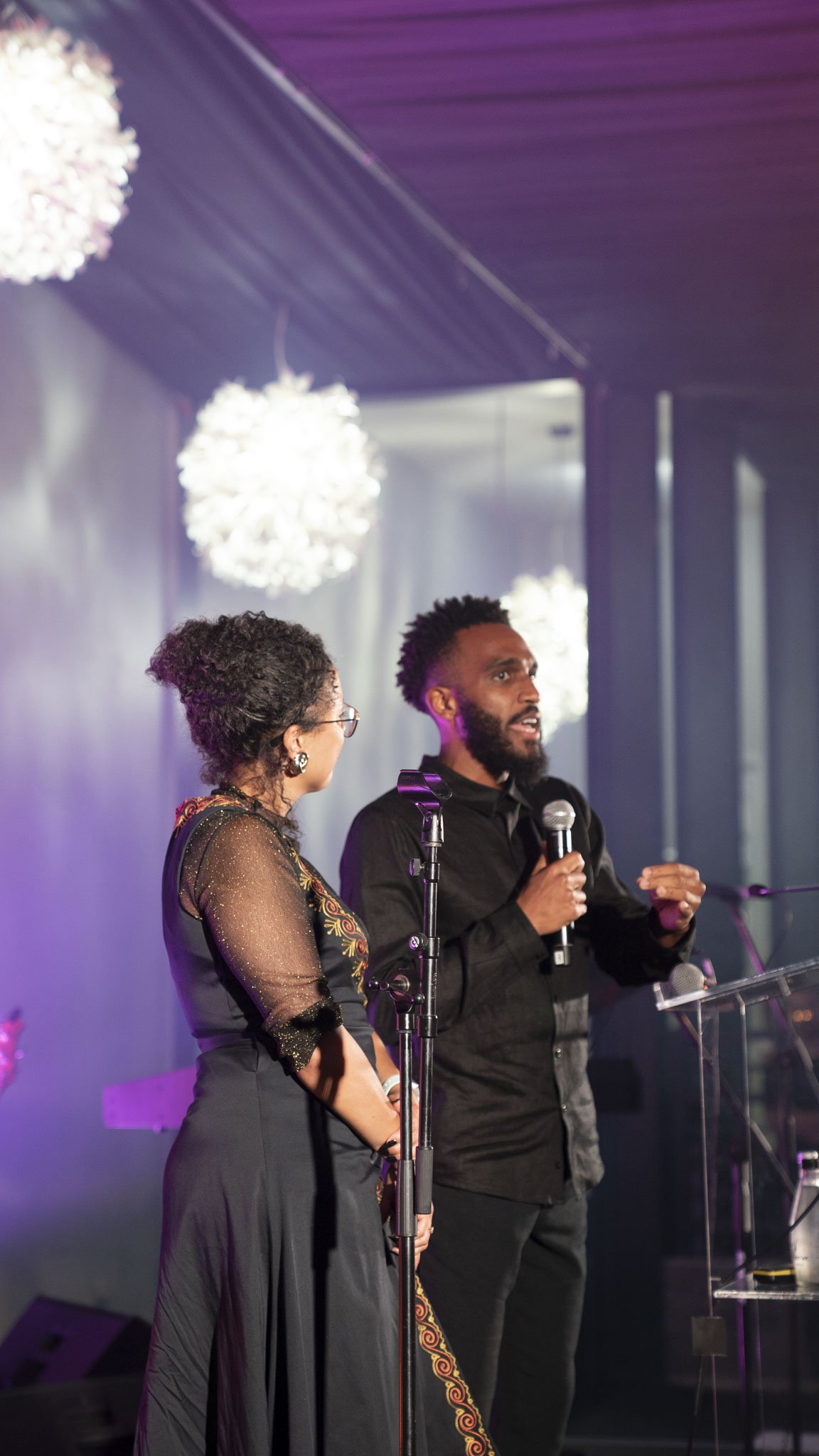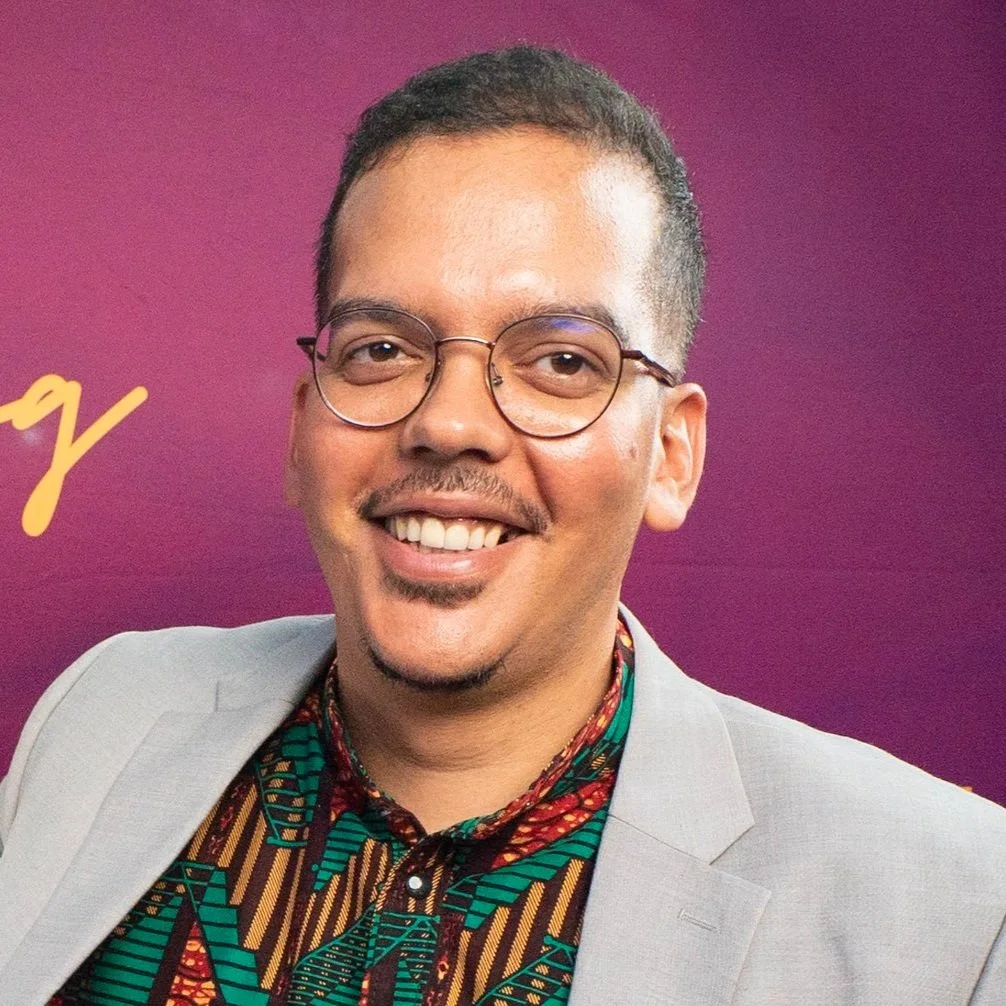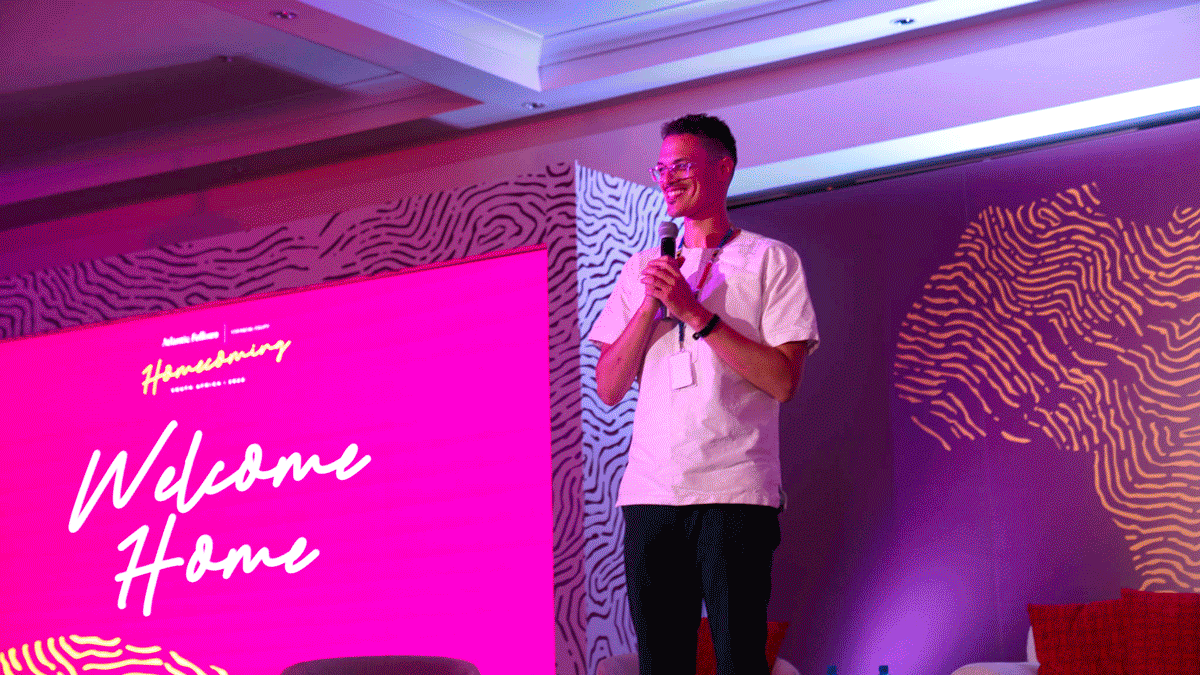
For the first time, the entire AFRE community—Fellows from all five cohorts, Board members, Staff present and past, and Friends— gathered in person on the outskirts of Johannesburg for Homecoming, a celebration of five years of AFRE.
Homecoming built on the long tradition of transnational convenings among racial justice leaders. Like our political ancestors, we reconnected with each other and with our shared mission as a community. We traded stories, laughed, made music, and danced. Our gathering was as rich with insight as it was tender with connection. Weaving together the soulful wisdom of art and poetry, with the hardnosed truths of statistical realities and strategy, Homecoming turbocharged many of us to continue our work to build futures beyond anti-Black racism.
See highlights from Homecoming in our recap video.
“My big takeaway from Homecoming is community.”

“[We] seek to make the world anew—this is our work”
Drawing on the wisdom of the Basotho and the AmaZulu people of Southern Africa and of Black American thinkers including Toni Morrison and Manning Marable, Executive Director Sebabatso Manoeli-Lesame welcomed our community to a gathering rooted in love and sharpened by clarity about our work.
Evoking the words of Audre Lorde, who wrote, “we have no patterns for relating across our human differences as equals,” Sebabatso described AFRE’s work:
Image by Nasser Eledroos’21
“We’re working to break the patterns of dispossession, the concentric circles of deprivation, the old habits of domination, the patterns of race itself. And as we seek to disrupt it, we also seek to remake the world anew.”
At the heart of Homecoming— and indeed of all of our work with Fellows at AFRE—was a recognition of the transformative power of relationships among changemakers.
As such, Homecoming began with sessions designed to help Fellows, many of whom had not shared physical space since the start of the pandemic, reconnect within and across their cohorts.
This foundation of relationship carried us throughout our time together, as Fellows, Staff, Board members, and Friends of our community, found each other in and out of sessions, in robust discussions, over meals, on walks, and on learning tours at the Apartheid Museum and Constitution Hill.
“I really care about these people, my fellow Fellows; I love them.”

To locate us in the complex dynamics each country faces, Homecoming featured two panels on the state of Black life and racial equity in both South Africa and the United States.
These conversations were timely given that we convened in a South Africa that remains full of promise but hamstrung by corruption and beset by stubbornly high levels of unemployment, disturbing rates of gender-based violence, and frequent power outages. Black people in the United States also continue to face a strategic assault on the right to vote, and long-standing disparities related to basic resources including housing, health care, and education.
Panellists in the South Africa conversation—including journalist and author Redi Thlabi, longtime community organiser, Mandisa Dyantyi, founder and editor-in-chief of Africa Is A Country Sean Jacobs, and scholar-researchers Victoria Collis-Buthelezi and Melissa Steyn—identified, among other themes, contemporary challenges to political organising, the evolution of whiteness in post-apartheid South Africa, and diverse efforts to decolonise academia.
On the U.S. panel, civil rights lawyer Damon T. Hewitt, economist and equity activist Manuel Pastor, southern constitutional lawyer Ann Beeson, narrative and social justice leader, Jee Kim considered the work of multiracial coalition building, the importance of longterm political strategy that anticipates backlash, and progressive political organising in rural America.
Redi Thlabi
Mandisa Dyantyi
Sean Jacobs
Victoria Collis-Buthelezi
Melissa Steyn
Ann Beeson
Damon T. Hewitt
Jee Kim
Manuel Pastor
“The work is much bigger than all of us, but I also feel encouraged by those pockets of people who want to do something about it.”

In the five years since our founding, AFRE has grown from an intuition that racial justice leaders across South Africa and the United States have much to learn from each other, to a transnational, interdisciplinary community where leaders find personal renewal and transformative relationships, and where we take seriously the work of visioning and building toward a world beyond anti-Blackness by nurturing the work of our political ancestors, and sowing a few seeds of our own.
To celebrate our community, we held the Homecoming Gala. There, acclaimed scholar and founding director of the Ida B. Wells Just Data Lab at Princeton University, Ruha Benjamin, offered a stirring keynote. Drawing on her latest book, Viral Justice, Ruha reminded us of the place of seemingly small everyday actions in social transformation. We capped off the night together with the musical genius of Thandiswa Mazwai and her band, and a set by DJ Kudz.
“Our work [requires] more than new laws and policies, but a new poetics, by which I mean creative care and attention to how we treat and value each other.”
Art has long been a vehicle to express a liberatory ethic among people committed to a world beyond anti-Blackness. At Homecoming, we surrounded ourselves with art in its many forms.
In the Lineage of Luminaries, AFRE’s first in-person exhibition, we explored the ways the racial justice movements of South Africa and the United States have converged and diverged over time. Co-produced by our media partners at Between Productions, the exhibition also included the work and voices of Fellows and the works that have inspired us as a community.
Art was also part of Homecoming in our open mic night where we shared our gifts with each other in spoken word poetry, rap, singing and book readings.
From a land acknowledgment rendered in song to an unofficial community anthem sung together, to outstanding performances by artists Mandisi Dyantyis and Thandiswa Mazwai and their bands, and a set by DJ Kudz, music was also a thread through our gathering.
Our team also curated the "Homecoming Vibes” playlist for specially for Homecoming. It features some of our most beloved music—enjoy it below!
“It was wonderful being in South Africa for Homecoming and engaging with AFRE’s transnational community of remarkable changemakers. Since launching in 2017, AFRE has become a vital part of the Columbia University family and we are honored to support AFRE’s urgent work to dismantle anti-Black racism and build new, inclusive futures.”


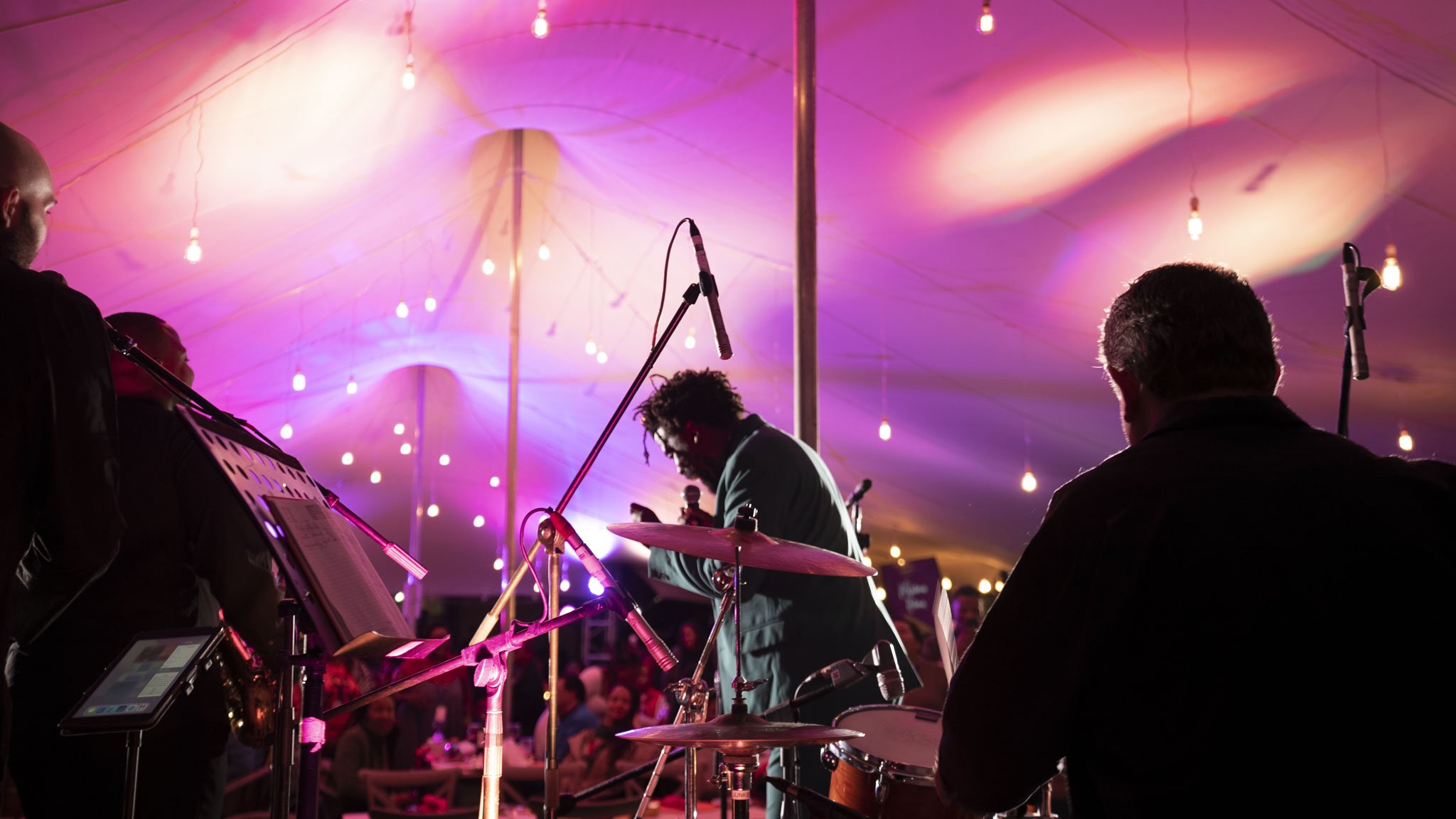
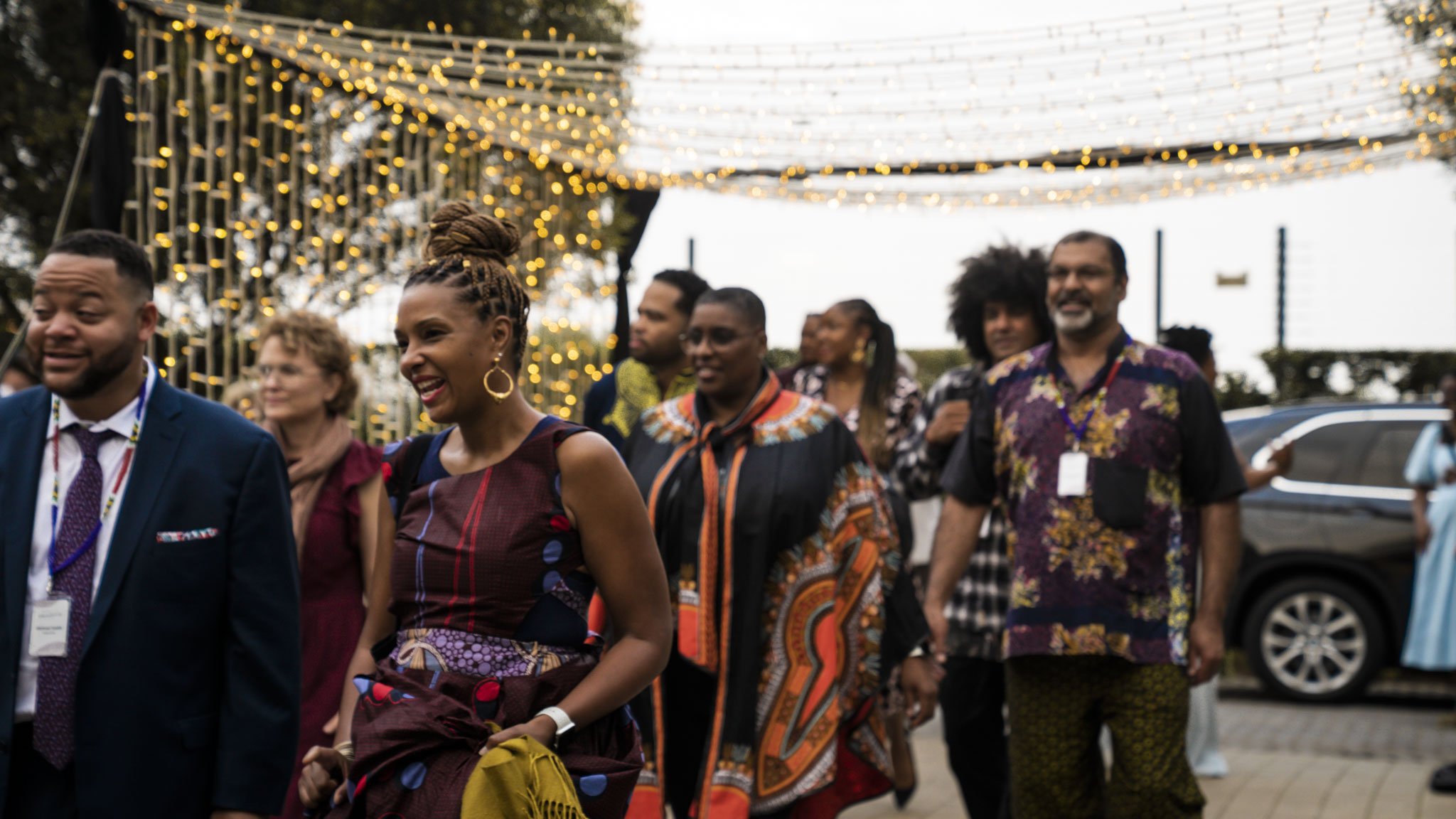
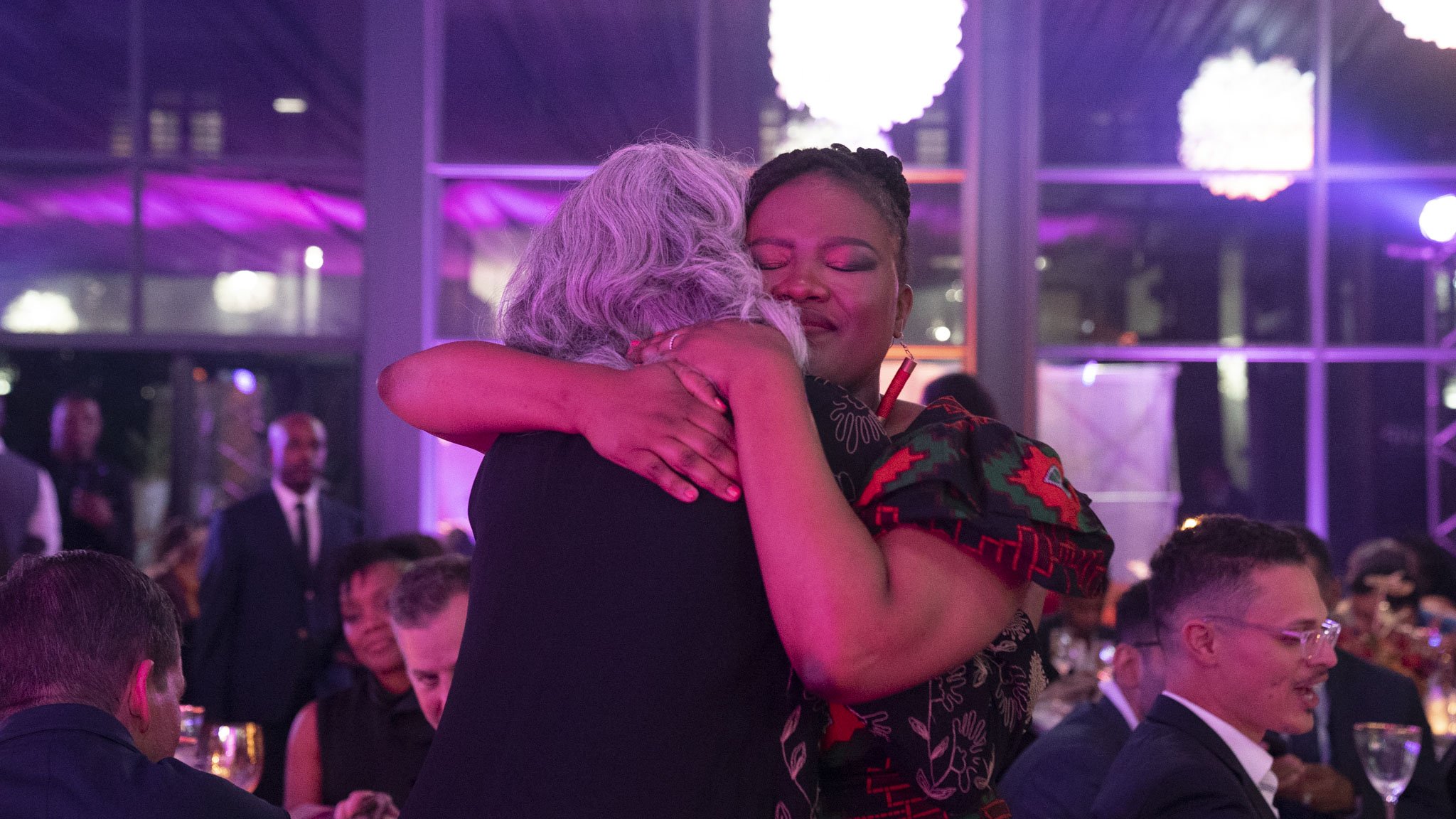
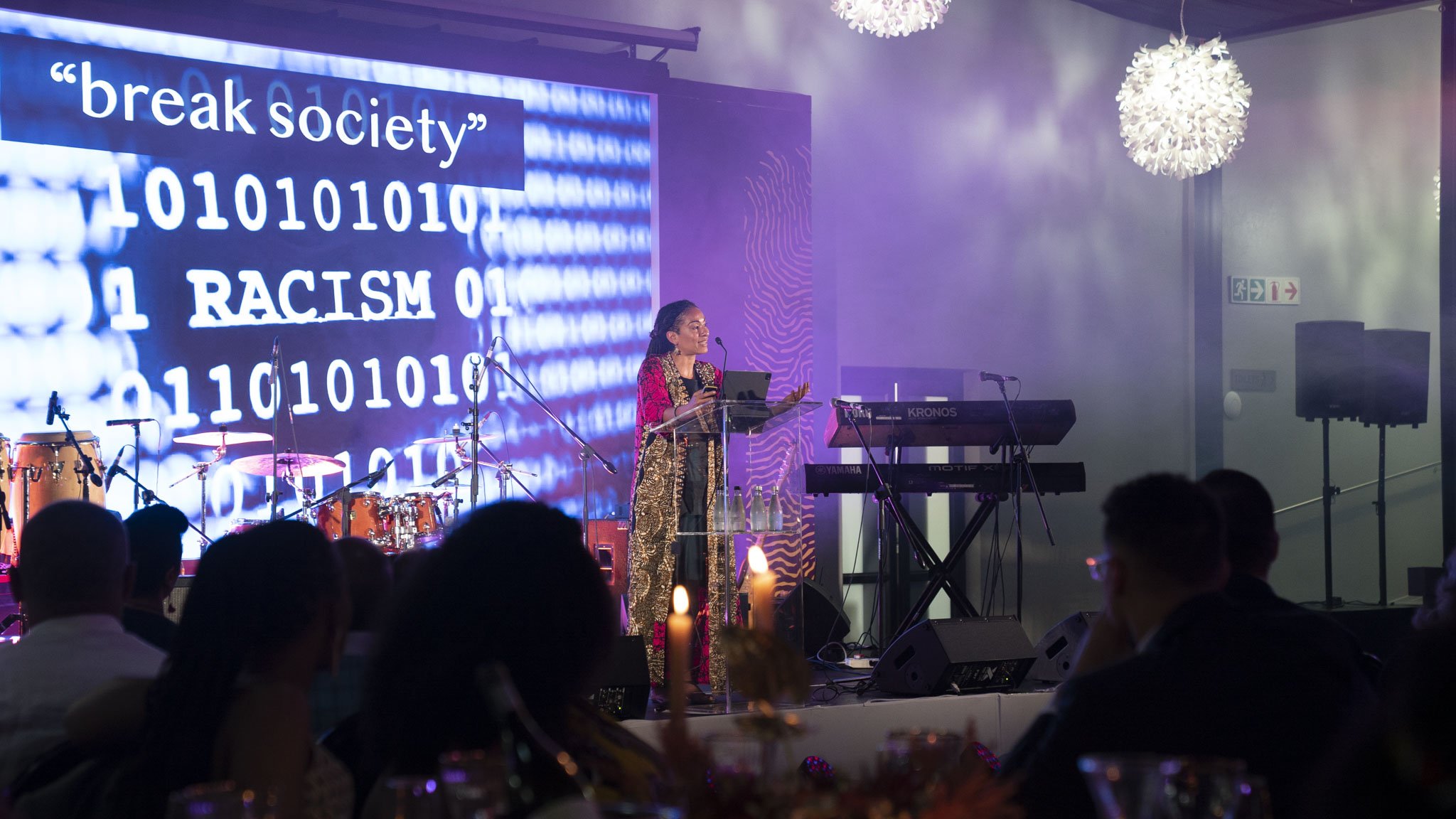
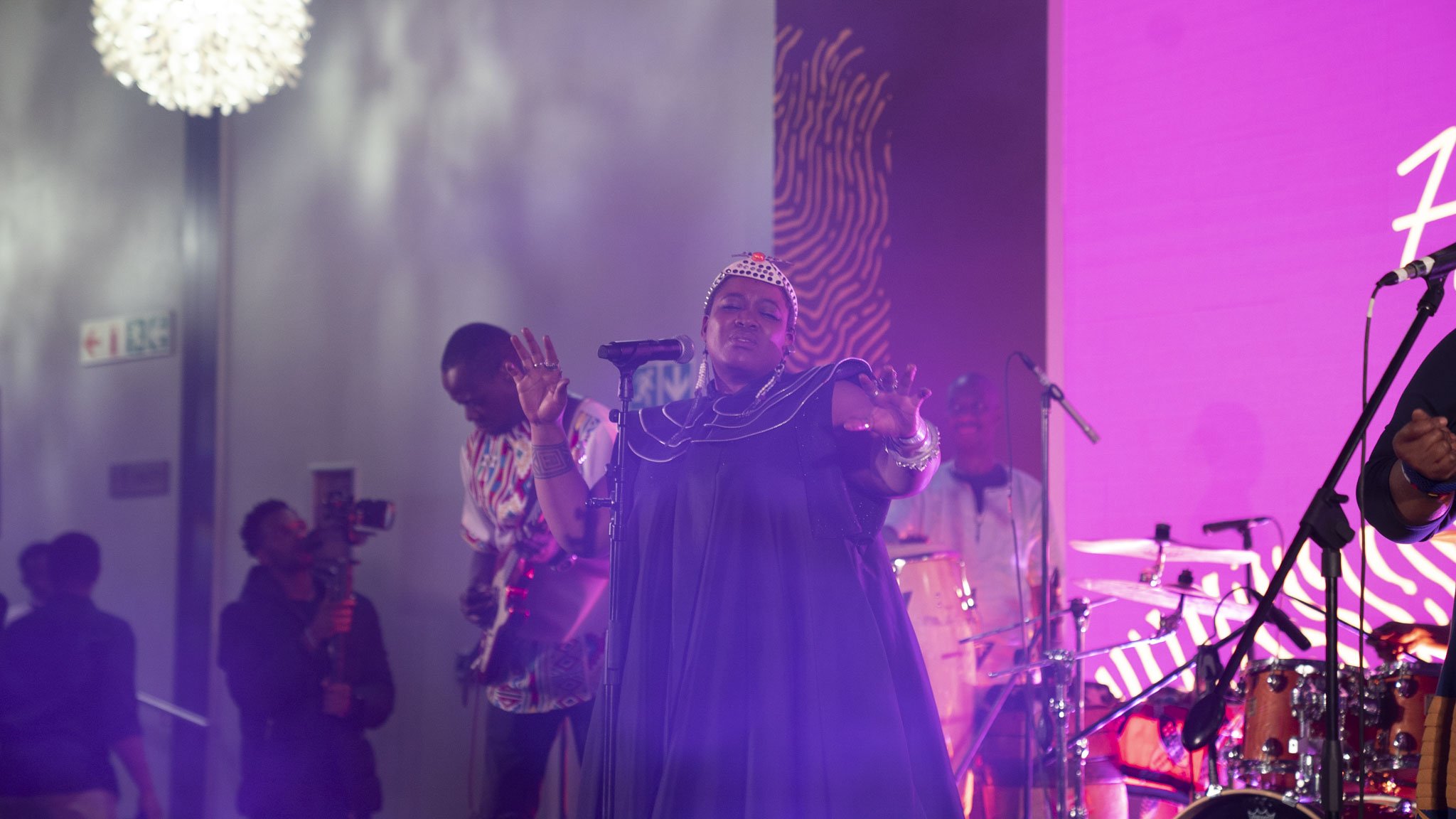
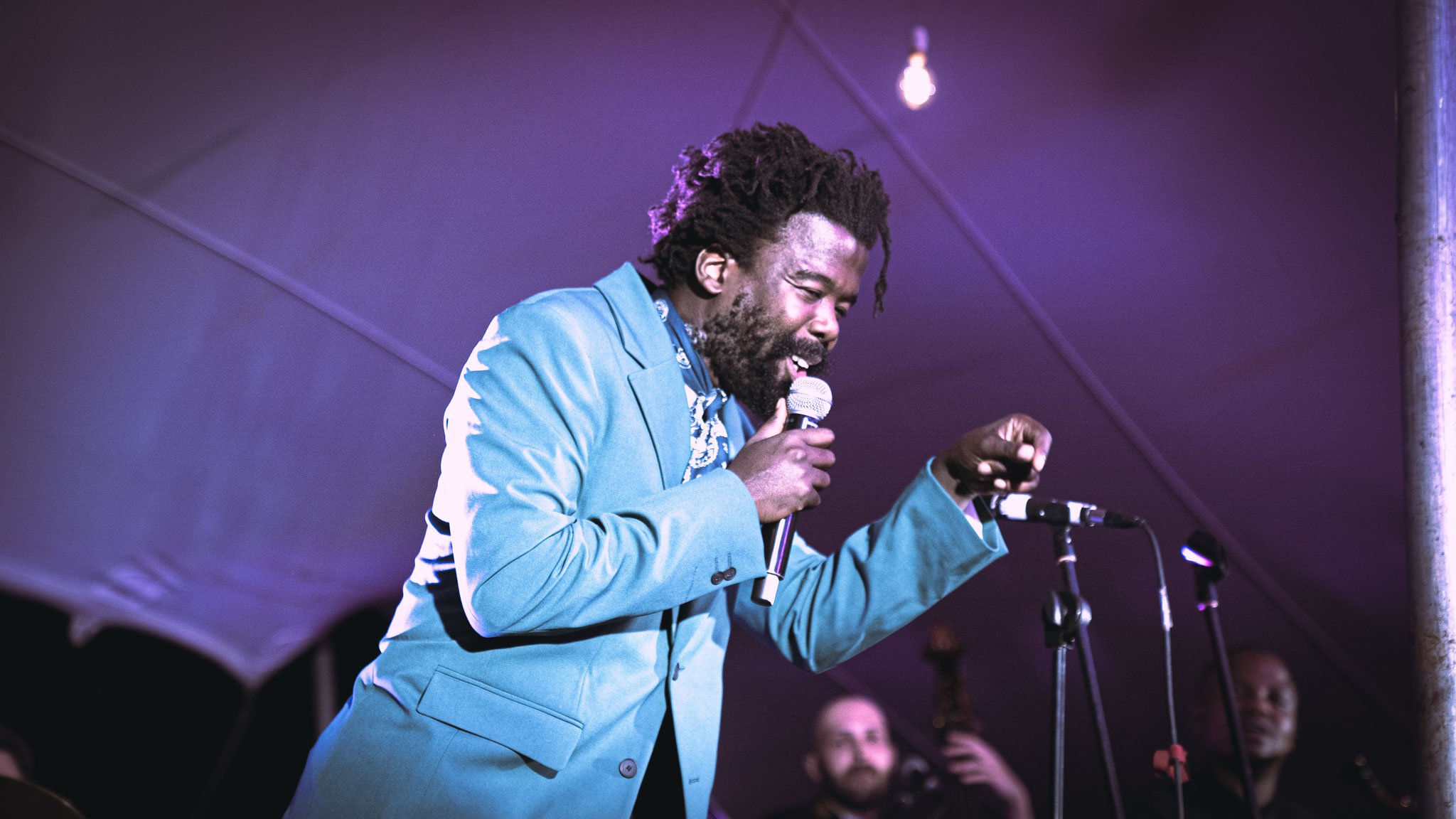
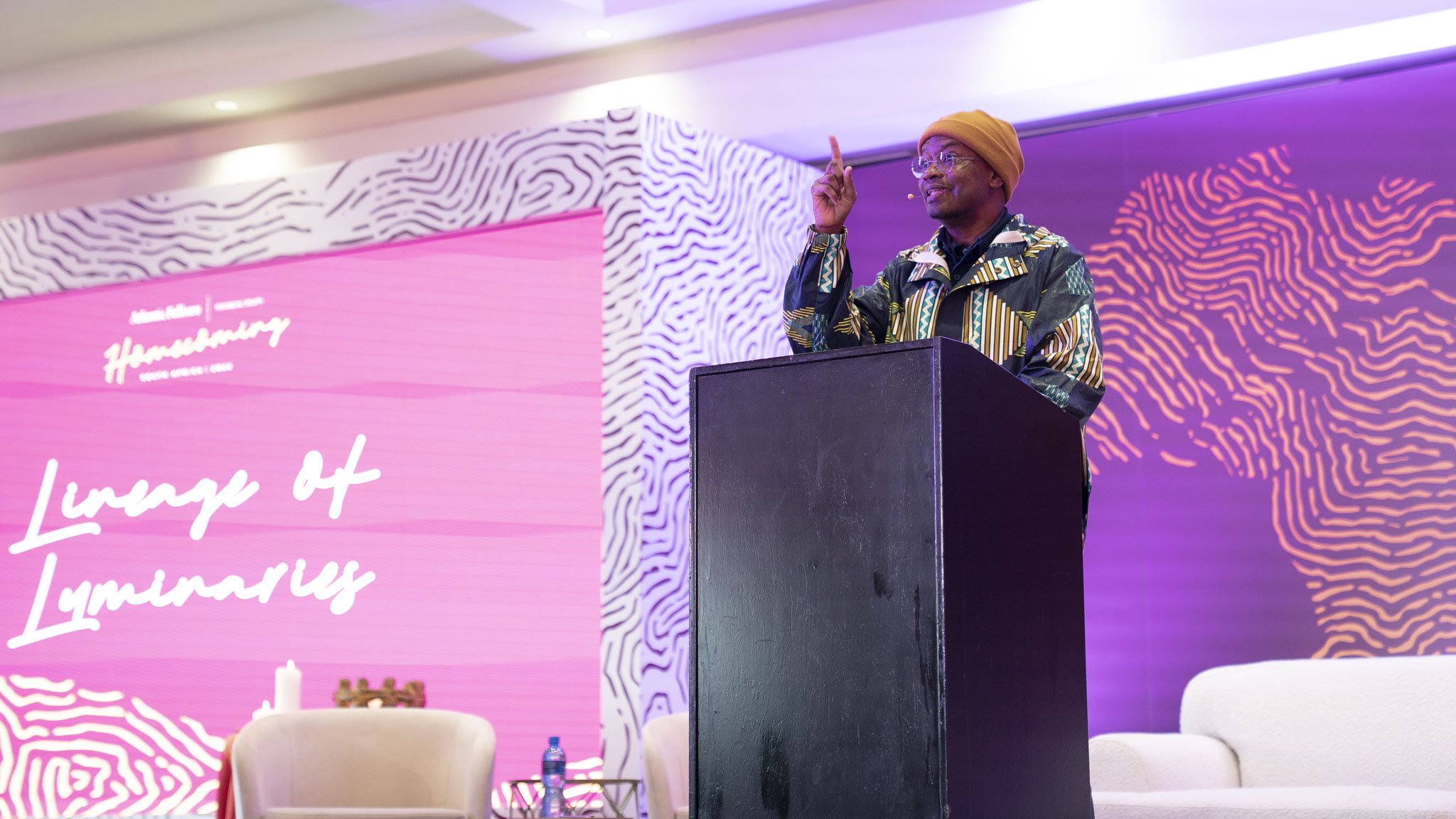
“It’s really been a Homecoming in terms of us coming together and finding home in each other.”










